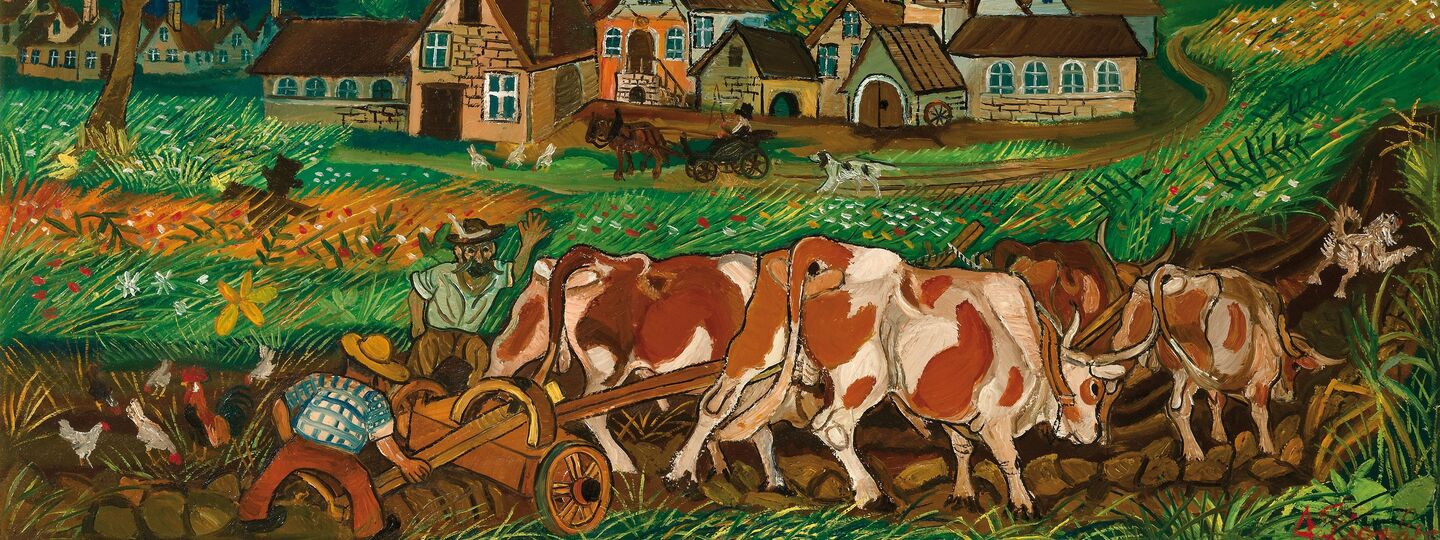
Info
Labour
Antonio Ligabue
1961
Fondazione & Archivio Antonio Ligabue di Parma
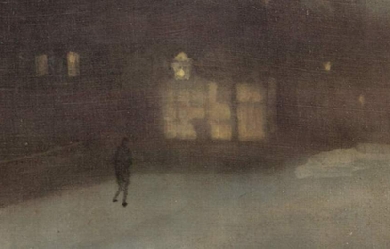
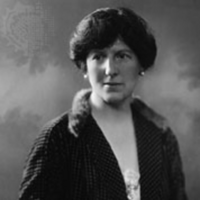
Alice Duer Miller (July 28, 1874– August 22, 1942) was an American writer whose poetry actively influenced political opinion. Her feminist verses impacted on the suffrage issue, while her verse-play The White Cliffs encouraged US entry into World War II. She also wrote novels and screenplays. Biography Alice Duer was born in New York City on July 28, 1874 into a wealthy family. She was the daughter of James Gore King Duer and Elizabeth Wilson Meads, the daughter of Orlando Meads of Albany, New York. Her great grandfather was William Alexander Duer, who was the president of Columbia College, 1829–1842. Her great great grandfather, was William Duer, an American lawyer, developer, and speculator from New York City. He had served in the Continental Congress and the convention that framed the New York Constitution. In 1778, he signed the United States Articles of Confederation. Her great great great grandfather was William Alexander, who claimed the disputed title of Earl of Stirling, and was an American Major-General during the American Revolutionary War. She was also a descendant of Senator Rufus King, who was an American lawyer, politician, and diplomat. He was a delegate for Massachusetts to the Continental Congress. He also attended the Constitutional Convention and was one of the signers of the United States Constitution on September 17, 1787, in Philadelphia, Pennsylvania. He represented New York in the United States Senate, served as Minister to Great Britain, and was the Federalist candidate for both Vice President (1804, 1808) and President of the United States (1816). At the time of her entrance into society, her family lost most of its fortune. She entered Barnard College in 1895 studying mathematics and astronomy. She helped to pay for her studies by selling novels and short essays. She and her sister, Caroline, jointly published a book of poems. Alice graduated in June 1899. On October 5, 1899, she married Henry Wise Miller at Grace Church Chapel in New York City. He was born in 1877, the son of Lt. Commander Jacob Miller, in Nice, France, where his father had been serving with the U.S. Navy. He was an 1892 graduate of Harvard University. They left for Costa Rica, where he attempted to develop rubber cultivation. This venture eventually failed and, in 1903, she, Miller and their young son returned to New York. She became known as a campaigner for women’s suffrage and published a brilliant series of satirical poems in the New York Tribune. These were published subsequently as Are Women People?. These words became a catchphrase of the suffrage movement. She followed this collection with Women Are People! (1917). As a novelist, she scored her first real success with Come Out of the Kitchen in 1916. The story was made into a play and later the 1948 film Spring in Park Lane. She followed it with a series of other short novels, many of which were staged and (increasingly) made into films. At about the same time, her husband began to make money on the Exchange and their money problems were over. Her marriage endured to the end of her life, but was not entirely tranquil. Her novel in verse Forsaking All Others (1933) about a tragic love affair, which many consider her greatest work, reflects this, though it is certainly not autobiographical. In the 1920s and 1930s, many of her stories were used for motion pictures, such as Are Parents People? (1925), Roberta (1935), and Irene (1940), taking her to Hollywood. She also became involved in a number of motion picture screenplays, including Wife vs. Secretary (1936). Her name appears in the very first issue of The New Yorker as an “advisory editor”. In 1940, she wrote the verse novel The White Cliffs, about an American girl who coming to London as a tourist, meets and marries a young upper-class Englishman in the period just before the First World War. The War begins and he goes to the front. He is killed just before the end of the War, leaving her with a young son. Her son is the heir to the family estate. Despite the pull of her own country and the impoverished condition of the estate, she decides to stay and live the traditional life of a member of the English upper class. The story concludes as The Second World War commences and she worries that her son, like his father, will be killed fighting for the country he loves. The poem ends with the lines: ...I am American bred I have seen much to hate here– much to forgive, But in a world in which England is finished and dead, I do not wish to live. The poem was spectacularly successful on both sides of the Atlantic, selling eventually approaching a million copies– an unheard of number for a book of verse. It was broadcast and recorded by British-American actress Lynn Fontanne (with a symphonic accompaniment), and the story was made into the 1944 film The White Cliffs of Dover, starring Irene Dunne. Like her earlier suffrage poems, it had a significant effect on American public opinion and it was one of the influences leading the United States to enter the War. Sir Walter Layton, who held positions in the Ministries of Supply and Munitions during the Second World War, even brought it to the attention of then-Prime Minister Winston Churchill. Death Alice Duer Miller died in 1942, and was interred at Evergreen Cemetery in Morristown, New Jersey.
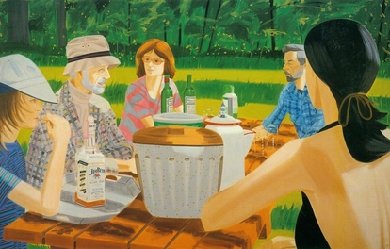
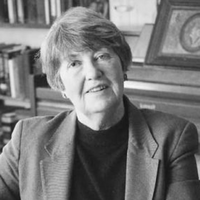
Lisel Mueller was born in Hamburg, Germany, on February 8, 1924 and immigrated to America at the age of 15. She won the U.S. National Book Award in 1981 and the Pulitzer Prize in 1997. Her poems are extremely accessible, yet intricate and layered. While at times whimsical and possessing a sly humor, there is an underlying sadness in much of her work.
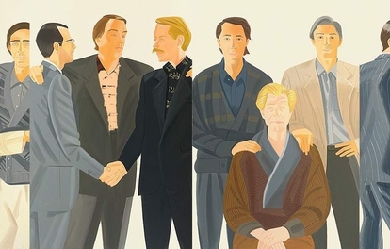
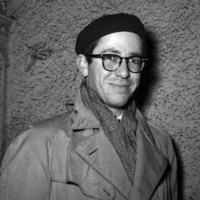
Kenneth Koch (27 February 1925– 6 July 2002) was an American poet, playwright, and professor, active from the 1950s until his death at age 77. He was a prominent poet of the New York School of poetry, a loose group of poets including Frank O’Hara and John Ashbery that eschewed contemporary introspective poetry in favor of an exuberant, cosmopolitan style that drew major inspiration from travel, painting, and music. Life Koch (pronounced coke) was born Jay Kenneth Koch in Cincinnati, Ohio. He began writing poetry at an early age, discovering the work of Shelley and Keats in his teenage years. At the age of 18, he served in WWII as a U.S. Army infantryman in the Philippines. After his service, he attended Harvard University, where he met future New York School poet John Ashbery. After graduating from Harvard in 1948, and moving to New York City, Koch studied for and received his Ph.D. from Columbia University. In 1951 he met his first wife, Janice Elwood, at UC Berkeley; they married in 1954 and lived in France and Italy for over a year. Their daughter, Katherine, was born in Rome in 1955. In 1959 he joined the faculty in the Department of English and Comparative Literature at Columbia, and he taught classes at Columbia for over forty years. His first wife died in 1981; Koch married his second wife, Karen Culler, in 1994. He was inducted into the American Academy of Arts and Letters in 1996. Koch died from a year-long battle with leukemia in 2002. Career While a student at Harvard, Koch won the prestigious Glascock Prize in 1948. In 1962, Koch was writer in residence at the New York City Writer’s Conference at Wagner College. The 1960s saw his first published books of poetry, but his poetry did not garner wider popular acclaim until the 1970s with his book The Art of Love: Poems (1975). He continued writing poetry and releasing books of poetry up until his death. Koch won the Bollingen Prize for One Train (1994) and On The Great Atlantic Rainway: Selected Poems 1950-1988 (1994), followed closely by the Phi Beta Kappa Poetry Award winner New Addresses (2000). In 1970, Koch released a pioneering book in poetry education, Wishes, Lies and Dreams: Teaching Children To Write Poetry. Over the next 30 years, he followed this book with other books and anthologies on poetry education tailored to teaching poetry appreciation and composition to children, adults, and the elderly. Koch wrote hundreds of avant-garde plays over the course of his 50-year career, highlighted by drama collections like 1000 Avant-Garde Plays (1988), which only contains 116 plays, many of them only one scene or a few minutes in length. His prose work is highlighted by The Red Robins (1975), a sprawling novel about a group of fighter pilots flying for personal freedom under the leadership of Santa Claus. He also published a book of short stories, Hotel Lambosa (1988), loosely based on and inspired by his world travels. He also produced at least one libretto, and several of his poems have been set to music by composers. Koch taught poetry at Columbia University, where his classes were popular. His wild humor and intense teaching style, often punctuated by unusual physicality (standing on a table to shout lines by Walt Whitman) and outbursts of vocal performance often drawn from Italian opera, drew non-English majors and alumni. Some of the spirit of these lectures is contained in his final book on poetry education, Making Your Own Days (1998). His students included poets Ron Padgett, David Shapiro, Frank Lima, Alan Feldman, David Lehman, Jordan Davis, Jessy Randall, David Baratier, Loren Goodman and Carson Cistulli. His poems were translated into German by the poet Nicolas Born in 1973 for the renowned “red-frame-series” of the Rowohlt Verlag. Koch had a brush with the anarchist affinity group Up Against the Wall Motherfuckers in early January 1968. During a poetry reading at St. Mark’s Church, a member of the group walked in and pointed a handgun at the podium, shouting “Koch!” before firing one blank round. The poet regained his composure and said to the “shooter,” “Grow up.” Poetry Koch asked in his poem Fresh Air (1956) why poets were writing about dull subjects with dull forms. Modern poetry was solemn, boring, and uneventful. Koch described poems “Written by the men with their eyes on the myth/ And the missus and the midterms...” He attacked the idea that poetry should be in any way stale. Koch wrote of how: The Waste Land gave the time’s most accurate data, It seemed, and Eliot was the Great Dictator Of literature. One hardly dared to wink Or fool around in any way in poems, And critics poured out awful jereboams To irony, ambiguity, and tension— And other things I do not wish to mention. (Excerpt from ‘'Seasons on Earth’,’ 1987) Though not against T. S. Eliot, Koch opposed the idea that in order to write poetry one had to be depressed or think that the world is a terrible place. His ideas were developed with close friends Frank O’Hara and John Ashbery, along with painters Jane Freilicher and Larry Rivers, among others. He once remarked that “Maybe you can almost characterize the poetry of the New York School as having as one of its main subjects the fullness and richness of life and the richness of possibility and excitement and happiness.” In his poem The Art of Poetry (1975) Koch offered guidelines to writing good poetry. Among his 10 suggestions are “1) Is it astonishing?” and “10) Would I be happy to go to Heaven with this pinned on to my angelic jacket as an entrance show? Oh would I?” Koch once remarked that “Children have a natural talent for writing poetry and anyone who teaches them should know that.” In his poems: He mixed word usage with various levels of imagery; He set two contrasting tones next to each other, simplicity and silliness at the same time; He spoke to everything, animate and inanimate objects; He used parody of other poets to express his own views, both serious and comic. Koch was labeled by some as just a comedic poet. He acknowledged this in an interview and offered his comments: He gives a picture of this in “To Kidding Around,” where the joys of being a joker are proclaimed: To be rid of troubles Of one person by turning into Someone else, moving and jolting As if nothing mattered but today In fact nothing But this precise moment... (Excerpt from To Kidding Around, 2000) Theater Koch collaborated with the composer Ned Rorem on an opera, Bertha, which received its premier in 1973. His short play, George Washington Crossing the Delaware, was produced in 1962. Numerous others of his plays have been produced. Selected works * Poems (1953) * Ko: or, A Season on Earth (1959) * Permanently (1961) * Thank You and Other Poems (1962) * Bertha, & other plays (1966) * Poems from 1952 and 1953 (1968) * The Pleasures of Peace and Other Poems (1969) * Sleeping with Women (1969) * When the Sun Tries to Go On (1969) * The Art of Love (1975) * The Duplications (1977) * The Burning Mystery of Anna in 1951 (1979) * From the Air (1979) * Days and Nights (1982) * On the Edge (1986) * Seasons on Earth (1987) * On the Great Atlantic Rainway: Selected Poems 1950–1988 (1994) * One Train (1994) * Straits (1998) * New Addresses (2000) * A Possible World (2002) References Wikipedia—https://en.wikipedia.org/wiki/Kenneth_Koch
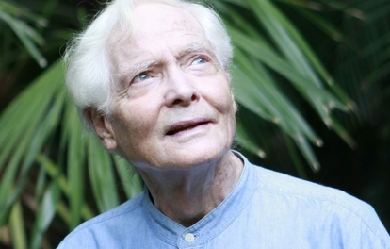
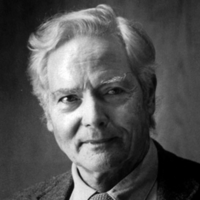
William Stanley Merwin (born September 30, 1927) is an American poet, credited with over fifty books of poetry, translation and prose. During the 1960s anti-war movement, Merwin’s unique craft was thematically characterized by indirect, unpunctuated narration. In the 1980s and 1990s, Merwin’s writing influence derived from his interest in Buddhist philosophy and deep ecology. Residing in Hawaii, he writes prolifically and is dedicated to the restoration of the islands’ rainforests. Merwin has received many honors, including the Pulitzer Prize for Poetry (in both 1971 and 2009), the National Book Award for Poetry (2005) and the Tanning Prize, one of the highest honors bestowed by the Academy of American Poets, as well as the Golden Wreath of the Struga Poetry Evenings. In 2010, the Library of Congress named Merwin the seventeenth United States Poet Laureate to replace the outgoing Kay Ryan. Following his receiving the Pulitzer Prize for Poetry in 2009, Merwin is recognized as one of the principal contributors to poetry in the early 21st century. Early life W. S. Merwin was born in New York City on September 30, 1927. He grew up on the corner of Fourth Street and New York Avenue in Union City, New Jersey until 1936, when his family moved to Scranton, Pennsylvania. As a child, he was enamored of the natural world, sometimes finding himself talking to the large tree in his back yard. He was also fascinated with things that he saw as links to the past, such as the building behind his home that had once been a barn that housed a horse and carriage. At the age of five he started writing hymns for his father, who was a Presbyterian minister. Career After attending Princeton University, Merwin married his first wife, Dorothy Jeanne Ferry, and moved to Spain. During his stay there, while visiting the renowned poet Robert Graves at his homestead on the island of Majorca, he served as tutor to Graves’s son. There, he met Dido Milroy—fifteen years older than he—with whom he collaborated on a play and whom he later married and lived with in London. In 1956, Merwin moved to Boston for a fellowship at the Poets’ Theater. He returned to London where he was friends with Sylvia Plath and Ted Hughes. In 1968, Merwin moved to New York City, separating from his wife who stayed at their home in France. In the late 1970s, Merwin moved to Hawaii and eventually was divorced from Dido Milroy. He married Paula Schwartz in 1983. In 1952 Merwin’s first book of poetry, A Mask for Janus, was published in the Yale Younger Poets Series. W. H. Auden selected the work for that distinction. Later, in 1971 Auden and Merwin would exchange harsh words in the pages of The New York Review of Books. Merwin had published “On Being Awarded the Pulitzer Prize” in the June 3, 1971, issue of The New York Review of Books outlining his objections to the Vietnam War and stating that he was donating his prize money to the draft resistance movement. From 1956 to 1957 Merwin was also playwright-in-residence at the Poet’s Theatre in Cambridge, Massachusetts; he became poetry editor at The Nation in 1962. Besides being a prolific poet (he has published over fifteen volumes of his works), he is also a respected translator of Spanish, French, Latin and Italian poetry (including Dante’s Purgatorio) as well as poetry from Sanskrit, Yiddish, Middle English, Japanese and Quechua. He also served as selector of poems of the late American poet Craig Arnold (1967–2009). Merwin is probably best known for his poetry about the Vietnam War, and can be included among the canon of Vietnam War-era poets which includes such luminaries as Robert Bly, Adrienne Rich; Denise Levertov; Robert Lowell; Allen Ginsberg and Yusef Komunyakaa. In 1998, Merwin wrote Folding Cliffs: A Narrative, an ambitious novel-in-verse about Hawaiʻi in history and legend. Merwin’s early subjects were frequently tied to mythological or legendary themes, while many of his poems featured animals. A volume called The Drunk in the Furnace (1960) marked a change for Merwin, in that he began to write in a much more autobiographical way. The title-poem is about Orpheus, seen as an old drunk. 'Where he gets his spirits / it’s a mystery’, Merwin writes; 'But the stuff keeps him musical’. Another poem of this period—'Odysseus’—reworks the traditional theme in a way that plays off poems by Stevens and Graves on the same topic. In the 1960s, Merwin lived in a small apartment in New York City’s Greenwich Village, and began to experiment boldly with metrical irregularity. His poems became much less tidy and controlled. He played with the forms of indirect narration typical of this period, a self-conscious experimentation explained in an essay called 'On Open Form’ (1969). The Lice (1967) and The Carrier of Ladders (1970) remain his most influential volumes. These poems often used legendary subjects (as in 'The Hydra’ or 'The Judgment of Paris’) to explore highly personal themes. In Merwin’s later volumes—such as The Compass Flower (1977), Opening the Hand (1983), and The Rain in the Trees (1988)—one sees him transforming earlier themes in fresh ways, developing an almost Zen-like indirection. His latest poems are densely imagistic, dream-like, and full of praise for the natural world. He has lived in Hawaii since the 1970s. Migration: New and Selected Poems won the 2005 National Book Award for poetry. A lifelong friend of James Wright, Merwin wrote an elegy to him that appears in the 2008 volume From the Other World: Poems in Memory of James Wright. The Shadow of Sirius, published in 2008 by Copper Canyon Press, was awarded the 2009 Pulitzer Prize for poetry. In June 2010, the Library of Congress named Merwin the seventeenth United States Poet Laureate to replace the outgoing Kay Ryan. He is the subject of the 2014 documentary film Even Though the Whole World Is Burning. Merwin appeared in the PBS documentary “The Buddha,” released in 2010. He had moved to Hawaii to study with the Zen Buddhist master Robert Aitkin in 1976. Personal life Today, Merwin lives on a former pineapple plantation built atop a dormant volcano on the northeast coast of Maui. Awards * Each year links to its corresponding "[year] in poetry" or "[year] in literature" article: * 1952: Yale Younger Poets Prize for A Mask for Janus * 1954: Kenyon Review Fellowship in Poetry * 1956: Rockefeller Fellowship * 1957: National Institute of Arts and Letters grant * 1957: Playwrighting Bursary, Arts Council of Great Britain * 1961: Rabinowitz Foundation Grant * 1962: Bess Hokin Prize, Poetry magazine * 1964/1965: Ford Foundation Grant * 1966: Chapelbrook Foundation Fellowship * 1967: Harriet Monroe Memorial Prize, Poetry magazine * 1969: PEN Translation Prize for Selected Translations 1948-1968 * 1969: Rockefeller Foundation Grant * 1971: Pulitzer Prize for Poetry for The Carrier of Ladders (published in 1971) * 1973: Academy of American Poets Fellowship * 1974: Shelley Memorial Award * 1979: Bollingen Prize for Poetry, Yale University Library * 1987: Governor’s Award for Literature of the state of Hawaii * 1990: Maurice English Poetry Award * 1993: The Tanning Prize for mastery in the art of poetry * 1993: Lenore Marshall Poetry Prize for Travels * 1994: Lila Wallace-Reader’s Digest Writers’ Award * 1998: Ruth Lilly Poetry Prize, awarded by The Poetry Foundation * 1999: Poetry Consultant to the Library of Congress, a jointly-held position with Rita Dove and Louise Glück * 2005: National Book Award for Poetry for Migration: New and Selected Poems * 2004: Golden Wreath Award of the Struga Poetry Evenings Festival in Macedonia * 2004: Lannan Lifetime Achievement Award * 2008: Golden Plate Award, American Academy of Achievement * 2009: Pulitzer Prize for Poetry for The Shadow of Sirius (published in 2008) * 2010: Kenyon Review Award for Literary Achievement * 2010: United States Poet Laureate * 2013: The Zbigniew Herbert International Literary Award Other accolades * Merwin’s former home town of Union City, New Jersey honored him in 2006 by renaming a local street near his former home W.S. Merwin Way. Bibliography * * Each year links to its corresponding "[year] in poetry" or "[year] in literature" article: Poetry - collections * * 1952: A Mask for Janus, New Haven, Connecticut: Yale University Press; awarded the Yale Younger Poets Prize, 1952 (reprinted as part of The First Four Books of Poems, 1975) * 1954: The Dancing Bears, New Haven, Connecticut: Yale University Press (reprinted as part of The First Four Books of Poems, 1975) * 1956: Green with Beasts, New York: Knopf (reprinted as part of The First Four Books of Poems, 1975) * 1960: The Drunk in the Furnace, New York: Macmillan (reprinted as part of The First Four Books of Poems, 1975) * 1963: The Moving Target, New York: Atheneum * 1966: Collected Poems, New York: Atheneum * 1967: The Lice, New York: Atheneum * 1969: Animae, San Francisco: Kayak * 1970: The Carrier of Ladders, New York: Atheneum;—winner of the Pulitzer Prize * 1970: Signs, illustrated by A. D. Moore; Iowa City, Iowa: Stone Wall Press * 1973: Writings to an Unfinished Accompaniment, New York: Atheneum * 1975: The First Four Books of Poems, containing A Mask for Janus, The Dancing Bears, Green with Beasts, and The Drunk in the Furnace, New York: Atheneum; (reprinted in 2000, Port Townsend, Washington: Copper Canyon Press) * 1977: The Compass Flower, New York: Atheneum * 1978: Feathers From the Hill, Iowa City, Iowa: Windhover * 1982: Finding the Islands, San Francisco: North Point Press * 1983: Opening the Hand, New York: Atheneum * 1988: The Rain in the Trees, New York: Knopf * 1988: Selected Poems, New York: Atheneum * 1993: The Second Four Books of Poems, Port Townsend, Washington: Copper Canyon Press * 1993: Travels: Poems, New York: Knopf winner of the 1993 Lenore Marshall Poetry Prize * 1996: The Vixen: Poems, New York: Knopf * 1997: Flower and Hand: Poems, 1977-1983 Port Townsend, Washington: Copper Canyon Press * 1998: The Folding Cliffs: A Narrative, a “novel-in-verse” New York: Knopf * 1999: The River Sound: Poems, New York: Knopf * 2001: The Pupil, New York: Knopf * 2005: Migration: New and Selected Poems, Port Townsend, Washington: Copper Canyon Press—winner of the National Book Award for Poetry * 2005: Present Company, Port Townsend, Washington: Copper Canyon Press * 2008: The Shadow of Sirius, Port Townsend, Washington: Copper Canyon Press—winner of the Pulitzer Prize * 2013: The Collected Poems of W. S. Merwin, New York: Library of America * 2014: The Moon Before Morning, Port Townsend, Washington: Copper Canyon Press Poems * Prose * * 1970: The Miner’s Pale Children, New York: Atheneum (reprinted in 1994, New York: Holt) * 1977: Houses and Travellers, New York: Atheneum (reprinted in 1994, New York: Holt) * Regions of Memory * 1982: Unframed Originals: Recollections * 1992: The Lost Uplands: Stories of Southwest France, New York: Knopf * 2002: The Mays of Ventadorn, National Geographic Directions Series; Washington: National Geographic * 2004: The Ends of the Earth, essays, Washington: Shoemaker & Hoard * 2005: Summer Doorways: A Memoir * 2007: The Book of Fables, Port Townsend, Washington: Copper Canyon Press Plays * * 1956: Darkling Child (with Dido Milroy), produced this year * 1957: Favor Island, produced this year at Poets’ Theatre in Cambridge, Massachusetts (broadcast in 1958 by Third Programme, British Broadcasting Corporation) * 1961: The Gilded West, produced this year at Belgrade Theatre, Coventry, England Translations * * 1959: The Poem of the Cid, London: Dent (American edition, 1962, New York: New American Library) * 1960: The Satires of Persius, Bloomington, Indiana: Indiana University Press * 1961: Some Spanish Ballads, London: Abelard (American edition: Spanish Ballads, 1961, New York: Doubleday Anchor) * 1962: The Life of Lazarillo de Tormes: His Fortunes and Adversities, a Spanish novella; New York: Doubleday Anchor * 1963: The Song of Roland * 1969: Selected Translations, 1948 - 1968, New York: Atheneum; winner of the PEN Translation Prize * 1969: Twenty Love Poems and a Song of Despair, poems by Pablo Neruda; London: Jonathan Cape (reprinted in 2004 with an introduction by Christina Garcia, New York: Penguin Books) * 1969: Products of the Perfected Civilization, Selected Writings of Chamfort, also author of the introduction; New York: Macmillan * 1969: Voices: Selected Writings of Antonio Porchia, Chicago: Follett (reprinted in 1988 and 2003, Port Townsend, Washington: Copper Canyon Press) * 1969: Transparence of the World, poems by Jean Follain, New York: Atheneum (reprinted in 2003, Port Townsend, Washington: Copper Canyon Press) * 1971: “Eight Quechua Poems”, The Hudson Review * 1973: Asian Figures, New York: Atheneum * 1974: Osip Mandelstam: Selected Poems (with Clarence Brown), New York: Oxford University Press (reprinted in 2004 as The Selected Poems of Osip Mandelstam, New York: New York Review of Books) * 1977: Sanskrit Love Poetry (with J. Moussaieff Masson), New York: Columbia University Press (published in 1981 as Peacock’s Egg: Love Poems from Ancient India, San Francisco: North Point Press) * 1977: Vertical Poetry, poems by Roberto Juarroz; San Francisco: Kayak (reprinted in 1988; San Francisco: North Point Press) * 1978: Euripides’ Iphigeneia at Aulis (with George E. Dimock, Jr.), New York: Oxford University Press * 1979: Selected Translations, 1968-1978, New York: Atheneum * 1981: Robert the Devil, an anonymous French play; with an introduction by the translator; Iowa City, Iowa: Windhover * 1985: Four French Plays, including Robert the Devil; The Rival of His Master and Turcaret by Alain-René Lesage; and The False Confessions by Pierre de Marivaux; New York: Atheneum * 1985: From the Spanish Morning, consisting of Spanash Ballads by Lope de Rueda and Eufemia: The Life of Lazarillo de Torres (originally translated in Tulane Drama Review, December 1958); New York: Atheneum * 1989: Sun at Midnight, poems by Musō Soseki (with Soiku Shigematsu) * 1996: Pieces of Shadow: Selected Poems of Jaime Sabines * 1998: East Window: The Asian Translations, translated poems from earlier collections, Port Townsend, Washington: Copper Canyon Press * 2000: Purgatorio from The Divine Comedy of Dante; New York: Knopf * 2005: Gawain and the Green Knight, a New Verse Translation, New York: Knopf * 2013: Selected Translations, translated poems from 1948 - 2010, Port Townsend, Washington: Copper Canyon Press * 2013: Collected Haiku of Yosa Buson, Port Townsend, Washington: Copper Canyon Press (with Takako Lento) * 2013: Sun At Midnight, poems by Muso Soseki, Port Townsend, Washington: Copper Canyon Press (with Soiku Shigematsu) (updated and reissued) Editor * * 1961: West Wind: Supplement of American Poetry, London: Poetry Book Society * 1996: Lament for the Makers: A Memorial Anthology (compiler), Washington: Counterpoint Other sources * * The Union City Reporter March 12, 2006. Archives * * Merwin’s literary papers are held at The Rare Book & Manuscript Library (University of Illinois at Urbana-Champaign). The collection, which is open to researchers, consists of some 5,500 archival items and 450 printed books. References Wikipedia—https://en.wikipedia.org/wiki/W._S._Merwin
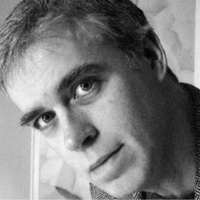
Michael Donaghy (May 24, 1954 – September 16, 2004) was a New York City poet and musician, who lived in London from 1985. Life and career Donaghy was born into an Irish family and grew up with his sister Patricia in the Bronx, New York, losing both parents in their early thirties. He studied at Fordham University and did postgraduate work at the University of Chicago, where, at 25, he edited the Chicago Review. Donaghy commented: “I owe everything I know about poetry to the public library system (in New York City) and not to my miseducation at university [...] I mean, the Bronx, who knows, now it may be full of cappuccino bars and bookshops, but back in those days it wasn’t. My parents would say something like ‘go out and play in the burning wreckage until dinnertime’ and I’d make a beeline for the library.” He founded the acclaimed Irish music ensemble Samradh Music and played the tin whistle, the bodhran and was a flute player of distinction, music echoing in the themes and forms of his writing. In 1985, he moved to just off Green Lanes in Harringay, north London to join his partner and fellow musician, Maddy Paxman, whom he married in 2003; their son, Ruairi, was born in 1996. He joined the London poetry workshop, founded by the Belfast poet Robert Greacen and later chaired by Matthew Sweeney, whose members included Vicki Feaver, Ruth Padel, Jo Shapcott, Maurice Riordan, Eva Salzman and Don Paterson. Rapidly establishing himself on the poetry scene, he published his first full collection, Shibboleth, in 1988– the title poem of which won second prize in the 1987 National Poetry Competition. Errata followed in 1993, and Conjure in 2000. Recognition came in the form of the Geoffrey Faber and Cholmondeley awards and the Whitbread and Forward prizes, among others. In 2003, he teamed up with Cyborg scientist Kevin Warwick and wrote Grimoire. He continued to play in various Irish music groups, as well as the early line-up of Lammas, the jazz/traditional crossover band led by Tim Garland and poet Don Paterson. He was a creative writing tutor for the Arvon Foundation and the Poetry Society and later ran an extension course for City University London. He wrote and reviewed for Poetry Review, Poetry, The New Yorker and The Times Literary Supplement. His poetry, influential to a younger generation of poets, is noted for its metaphysical elegance and playfulness, and his skillful use of form. Death He died suddenly of a brain haemorrhage on September 16, 2004. David Wheatley wrote in The Guardian: "The death of Michael Donaghy in 2004 at the age of 50 has been one of the most deeply felt losses to the poetry world in recent years. Not since Sylvia Plath almost half a century ago had an American poet living in Britain so decisively entered the bloodstream of his times." The Times described him as “one of the most widely respected figures on the British poetry scene and a fierce defender of poetry as a source of pleasure and truth.” His fourth collection Safest was published posthumously in 2005 and a prose collection The Shape of the Dance in 2009. Honours and awards 1987: National Poetry Competition (2nd Prize) 1990: Geoffrey Faber Memorial Prize 1992: Arts Council Writers Award 1994: Selected for New Generation Poets Promotion 1999: Arts Council Writers Award 1999: The Poetry Society Reader in Residence 1999: Fellow of the Royal Society of Literature 2000: Poetry Book Society Choice, Conjure 2000: Forward Poetry Prize (Best Collection) for Conjure Selected works * 1988 Shibboleth, Oxford University Press * 1993 Errata, Oxford University Press * 1997 Penguin Modern Poets 11 (contributor with Andrew Motion and Hugo Williams), London: Penguin * 2000 Dances Learned Last Night: Poems 1975-1995, London: Picador * 2000 Conjure Picador * 2005 101 Poems about Childhood (editor), London: Faber & Faber * 2005 Michael Donaghy Reading from his poems (CD), The Poetry Archive * 2009 Collected Poems, Picador (posthumous) * 2009 The Shape of the Dance: Essays, Interviews and Digressions Picador (posthumous) References Wikipedia—https://en.wikipedia.org/wiki/Michael_Donaghy
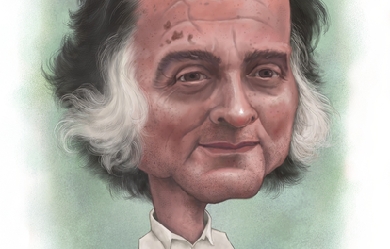
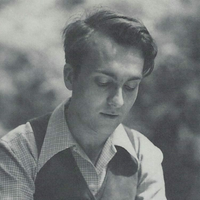
Robert Edward Duncan (January 7, 1919 in Oakland, California– February 3, 1988) was an American poet and a devotee of H.D. and the Western esoteric tradition who spent most of his career in and around San Francisco. Though associated with any number of literary traditions and schools, Duncan is often identified with the poets of the New American Poetry and Black Mountain College. Duncan saw his work as emerging especially from the tradition of Pound, Williams and Lawrence. Duncan was a key figure in the San Francisco Renaissance.
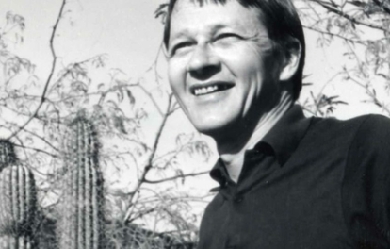
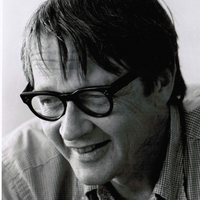
Donald Justice was an American poet and teacher of writing. In summing up Justice's career David Orr wrote, "In most ways, Justice was no different from any number of solid, quiet older writers devoted to traditional short poems. But he was different in one important sense: sometimes his poems weren't just good; they were great. They were great in the way that Elizabeth Bishop's poems were great, or Thom Gunn's or Philip Larkin's. They were great in the way that tells us what poetry used to be, and is, and will be." Justice grew up in Florida and earned a bachelor's degree from the University of Miami in 1945. He received an M.A. from the University of North Carolina in 1947, studied for a time at Stanford University, and ultimately earned a doctorate from the University of Iowa in 1954. He went on to teach for many years at the Iowa Writers' Workshop, the nation's first graduate program in creative writing. He also taught at Syracuse University, the University of California at Irvine, Princeton University, the University of Virginia, and the University of Florida in Gainesville. Justice published thirteen collections of his poetry. The first collection, The Summer Anniversaries, was the winner of the Lamont Poetry Prize given by the Academy of American Poets in 1961; Selected Poems won the Pulitzer Prize for Poetry in 1980. He was awarded the Bollingen Prize in Poetry in 1991, and the Lannan Literary Award for Poetry in 1996. He was a member of the American Academy of Arts and Letters and a Chancellor of the Academy of American Poets from 1997 to 2003. His Collected Poems was nominated for the National Book Award in 2004. Justice was also a National Book Award Finalist in 1961, 1974, and 1995. In his obituary, Andrew Rosenheim notes that Justice "was a legendary teacher, and despite his own Formalist reputation influenced a wide range of younger writers — his students included Mark Strand, Rita Dove, James Tate, Jorie Graham and the novelist John Irving". His student and later colleague Marvin Bell said in a reminiscence, "As a teacher, Don chose always to be on the side of the poem, defending it from half-baked attacks by students anxious to defend their own turf. While he had firm preferences in private, as a teacher Don defended all turfs. He had little use for poetic theory..." Of Justice's accomplishments as a poet, his former student, the poet and critic Tad Richards, noted that "Donald Justice is likely to be remembered as a poet who gave his age a quiet but compelling insight into loss and distance, and who set a standard for craftsmanship, attention to detail, and subtleties of rhythm." Justice's work was the subject of the 1998 volume Certain Solitudes: On The Poetry of Donald Justice, a collection of essays edited by Dana Gioia and William Logan. Poetry * The Old Bachelor and Other Poems (Pandanus Press, Miami, FL), 1951. * The Summer Anniversaries (Wesleyan University Press, Middletown, CT), 1960; revised edition (University Press of New England, Hanover, NH), 1981. * A Local Storm (Stone Wall Press, Iowa City, IA, 1963). * Night Light (Wesleyan University Press, Middletown, CT, 1967); revised edition (University Press of New England, Hanover, NH, 1981). * Sixteen Poems (Stone Wall Press, Iowa City, IA, 1970). * From a Notebook (Seamark Press, Iowa City, IA, 1971). * Departures (Atheneum, New York, NY, 1973). * Selected Poems (Atheneum, New York, NY, 1979). * Tremayne (Windhover Press, Iowa City, IA, 1984). * The Sunset Maker (Anvil Press Poetry, 1987). * A Donald Justice Reader (Middlebury, 1991). * New and Selected Poems (Knopf, 1995). * Orpheus Hesitated beside the Black River: Poems, 1952-1997 (Anvil Press Poetry, London, England), 1998. * Collected Poems (Knopf, 2004). Essay and interview collections * Oblivion: On Writers and Writing, 1998 * Platonic Scripts, 1984 References Wikipedia—http://en.wikipedia.org/wiki/Donald_Justice
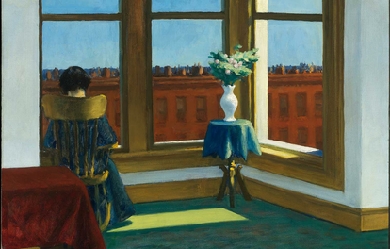
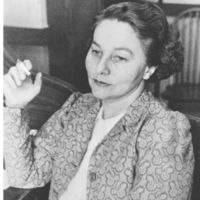
Genevieve Taggard (November 28, 1894 Waitsburg, Washington– November 8, 1948 New York City) was an American poet. During the 1930s, sparked in part by the Great Depression, but also largely by her philanthropic upbringing and her commitment to socialism, her poetry began to reflect her political and social views much more prominently. During this time a Guggenheim Fellowship allowed her to spend a year in Majorca, Spain and Antibes, France. The experience of Spain in its time shortly before the Spanish Civil War gave further rise and inspiration to her cause of raising social and political awareness of civil rights issues.
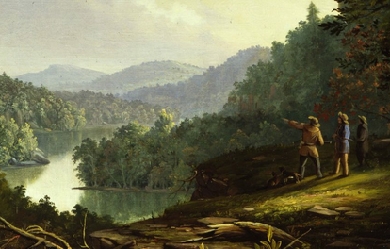
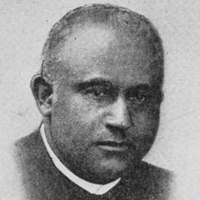
Joseph Seamon Cotter Sr. (February 2, 1861– March 14, 1949) was a poet, writer, playwright, and community leader raised in Louisville, Kentucky (but born in Nelson County, Kentucky). Cotter was one of the earliest African-American playwrights to be published. He was known as “Kentucky’s first Negro poet with real creative ability.” Born at the start of the American Civil War, raised in poverty with no formal education until the age of 22, and living through a time of monumental change, Cotter also became an educator and an advocate of black education. Personal life Cotter grew up in a family of mixed racial heritage. His father, Michael J. Cotter, was a white man of Scots-Irish ancestry, and his mother, Martha Vaughn, was a freeborn black of mixed heritage (one of several children born to an African slave mother and an English-Cherokee father). On July 22, 1891, Cotter married Maria F. Cox, a fellow teacher, with whom he had four children: Leonidas, Florence, Olivia, and Joseph Seamon Cotter Jr (a distinguished poet-playwright in his own merit). Education After completing the third grade, Cotter dropped out to help support his family. Cotter worked in manual labor and various odd jobs until the age of 22, where he joined the first and newly created Louisville night school for black students. Cotter attended night school for ten months, earning his high school diploma and teaching credentials. According to Metzger (1989): “There is little specific information about either the extent of Cotter’s education—it seems certain that he never attended college or completed a degree-granting program—or his professional life as an educator. Although some writers had felt that Cotter must have attended college, his love of writing and of literature might just have well stemmed from the many books that his mother had read to him as a child. And although Cotter’s contributions to black education are now seen as extremely important, at the time he was working, few details of such work were preserved for later study. What is now certain is that Cotter became a respected writer, although when he first began to write is not clear.” Career in education Once becoming qualified to teach, Cotter got his first job in the Cloverport Public School system. The conditions at Cloverport were extremely poor. Cotter made the best of teaching children in a small one-roomed school house with dirt flooring and no heating. This marked the start of Cotter’s long dedication to the education of black children and a commitment to his community. After two years teaching at Cloverport, Cotter taught at a nearby private school before moving to the Louisville Public School system two years later. His first job within the Louisville Public School system was at Western Colored School, which was located in an all-black neighborhood. Here Cotter would teach for the next four years, from 1889 to 1893. Attesting to his belief in black education, in 1893 Cotter founded the Paul Lawrence Dunbar School, named after the poet and friend Paul Laurence Dunbar. Cotter served as principal of this black high school until 1911, whereupon he took the position of principal at Samuel Coleridge-Taylor School and held the post until 1942. Along with his 53-year career as an educator, Cotter worked for racial advancement with many local and national organizations, including Louisville Colored Orphans Home Society, Kentucky Educational Association, Author’s League, Association for the Study of Negro Life and History, and NAACP. Literary contributions Cotter’s literary contributions include nine published works. Among these works are 4 volumes of poetry: A Rhyming (1895); Links of Friendship (1898); A White Song and a Black One (1909); and Collected Poems (1938). Cotter’s other publications include: Sequel to “The Pied Piper of Hamelin,” and Other Poems (1939), a collection of poetry and prose; Negroes and Others at Work and Play (1947); Caleb, the Degenerate; A Play in Four Acts: A Study of the Types, Customs, and Needs of the American Negro (1903); and 2 collections of prose, Negro Tales (1912), and Twenty-fifth Anniversary of the Founding of Colored Parkland or “Little Africa,” Louisville, Ky., 1891–1916 (1934). Cotter also often contributed to periodicals such as the Louisville Courier-Journal (from 1884), National Baptist Magazine (1894–1908), Voice of the Negro (1904–07), Southern Teachers Advocate (Kentucky; 1905-6), and Alexander’s Magazine (1909). According to William S. Ward, "…[Cotter’s] writings have never won him high recognition, but he has fared rather well at the hands of black historians." Cotter’s writing is known to utilize both dialect and standard English to advocate race advancement, “to be gained by a mixture of race pride, humility, hard work, education, and a positive, optimistic outlook.” Historian Joan R. Sherman also notes that a common theme seen in Cotter’s writing, from his earliest poems to The Negro’s Ten Commandments (1947), is that "he consistently advocated this gospel: (5) Read not thyself out of toiling with the hands, and toil not thyself out of reading; for reading makes one akin to the ox. Therefore he who simply dreams is dying, and he who dreams not is already dead. (7) Learn thou the worth of a dollar and how to keep it from damning thee. (9) Socially thou shalt go no nearer thy brother than he comes to thee. Aversion in him should slay the thought of advance in thee. (10) If thou hast a mind to live by being honest, industrious, frugal and self-sacrificing, remain in the South where thou shalt surely reap thy character’s worth; but if thou hast a mind to die through sloth, ignorance and folly, get thee far from it, for the burden of burying such is becoming intolerable.” Bibliography * Cotter, Joseph S. A Rhyming. Louisville, Ky.: New South Publishing, Co., 1895. 32 pp. Copy: DLC * Cotter, Joseph S. Links of Friendship. Louisville, Ky.: Bradley & Gilbert Co., 1898. 64 pp. 54 poems. Portrait. Copies: DHU, DLC, NN, NNSch. * Cotter, Joseph S. Caleb, the Degenerate; A Play in Four Acts: A Study of the Types, Customs, and Needs of the American Negro. Louisville, Ky.: Bradley & Gilbert Co., 1903. 57 pp. Portrait. *Copies: DHU, DLC, NN, NNSch copy inscribed by Cotter to the Rev. Edward Everett Hale. * Cotter, Joseph S. Negro Tales. New York: Cosmopolitan Press, 1912. 148 pp. 17 tales. Copies: DHU, NNsch. * Cotter, Joseph S. A White Song and a Black One. Louisville, Ky.: Bradley & Gilbert Co., 1909. 64 pp. 48 poems. Copies: DHU, DLC, NN, NNSch copy inscribed: “With compliments of Joseph S. Cotter.” * Cotter, Joseph S. Twenty-fifth Anniversary of the Founding of Colored Parkland or “Little Africa” Louisville, Ky., 1801–1916. 1934. Louisville, Ky.: I. Willis Cole Publishing Co., 1934. Copy: DHU. * Cotter, Joseph S. Collected Poems. New York: Henry Harrison, 1938. 78 pp. 73 poems. Portrait. Copies: DHU, DLC, NN, NNSch * Cotter, Joseph S. Sequel to “The Pied Piper of Hamelin,” and Other Poems. New York: Henry Harrison, 1939. 93 pp. 69 poems. Copies: DHU, DLC, NN, NNSch. Copies: DHU, DLC, NN, NNSch * Cotter, Joseph S. Negroes and Others at Work and Play. New York: Paebar Co., 1947. 63 pp. 7 poems, aphorisms, tales, sketches, plays, songs. Further reading * Brooks, A. Russell. “Joseph Seamon Cotter, Sr.,” In Dictionary of Literary Biography, vol. 50: 62–70. * Hatch, James V., ed. Black Theatre, U.S.A.: Forty-Five Plays by Black Americans. New York: Free Press/Macmillan, 1974. * Kerlin, Robert T. “A Poet from Bardstown.” South Atlantic Quarterly 20 (July 1921) 213-21. * Shockley, Ann Allen. “Joseph S. Cotter, Sr.: Biographical Sketch of a Black Louisville Bard,” College Language Association Journal 18 (March 1975), 327–340. * Townsend, John Wilson. “Kentucky’s Dunbar: Joseph Seamon Cotter.” In Lore of the Meadowland, 23–26. Lexington, Ky.: J.L. Richardson, 1911. References Wikipedia—https://en.wikipedia.org/wiki/Joseph_Seamon_Cotter,_Sr.
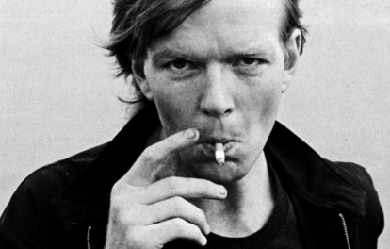
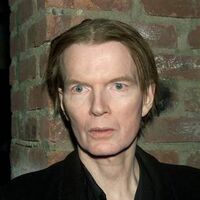
James Dennis "Jim" Carroll (August 1, 1949 – September 11, 2009) was an American author, poet, autobiographer, and punk musician. Carroll was best known for his 1978 autobiographical work The Basketball Diaries, which was made into the 1995 film of the same name, starring Leonardo DiCaprio as Carroll. Carroll was born to a working-class family of Irish descent, and grew up on New York City's Lower East Side. When he was about eleven (in the sixth grade) his family moved north to Inwood in Upper Manhattan where he attended Good Shepherd School. He was taught by the LaSalle Christian Brothers, and his brother in the sixth grade noted that he could write and encouraged him to do so. In fall 1963, he entered public school, but was soon awarded a scholarship to the elite Trinity School. He attended Trinity from 1964–1968. Apart from being interested in writing, Carroll was an all-star basketball player throughout his grade school and high school career. He entered the "Biddy League" at age 13 and participated in the National High School All Star Game in 1966. During this time, Carroll was living a double life as a heroin addict who prostituted himself to afford his habit but he was also writing poems and attending poetry workshops at St. Mark's Poetry Project. He briefly attended Wagner College and Columbia University. Literary career While still in high school, Carroll published his first collection of poems, Organic Trains. Already attracting the attention of the local literati, his work began appearing in the Poetry Project's magazine The World in 1967. Soon his work was being published in elite literary magazines like Paris Review in 1968, and Poetry the following year. In 1970, his second collection of poems, 4 Ups and 1 Down was published, and he started working for Andy Warhol. At first, he was writing film dialogue and inventing character names; later on, Carroll worked as the co-manager of Warhol's Theater. Carroll's first publication by a mainstream publisher (Grossman Publishers), the poetry collection Living at the Movies, was published in 1973. In 1978, Carroll published The Basketball Diaries, an autobiographical book concerning his life as a teenager in New York City's hard drug culture. Diaries is an edited collection of the diaries he kept between the ages of twelve and sixteen, detailing his sexual experiences, high school basketball career, and his addiction to heroin, which began when he was 13. In 1987, Carroll wrote a second memoir entitled Forced Entries: The Downtown Diaries 1971–1973, continuing his autobiography into his early adulthood in the New York City music and art scene as well as his struggle to kick his drug habit. After working as a musician, Carroll returned to writing full-time in the mid-1980s and began to appear regularly on the spoken word circuit. Starting in 1991, Carroll performed readings from his then-in-progress first novel, The Petting Zoo. Music career In 1978, after he moved to California to get a fresh start since kicking his heroin addiction, Carroll formed The Jim Carroll Band, a New Wave/punk rock group, with encouragement from Patti Smith, with whom he once shared an apartment in New York City, along with Robert Mapplethorpe.[9] The band was originally called Amsterdam, and was based in the San Francisco Bay Area. The musicians were Steve Linsley (bass), Wayne Woods (drums), Brian Linsley and Terrell Winn (guitars). They released a single "People Who Died", from their 1980 debut album, Catholic Boy. The album featured contributions from Allen Lanier and Bobby Keys. In 1982 the song appeared in E.T. the Extra-Terrestrial, from which Carroll received royalties until his death in 2009. The song also appeared in the 1985 Kim Richards vehicle Tuff Turf starring James Spader and Robert Downey Jr., which also featured a cameo appearance by the band, as well as 2004's Dawn of the Dead. It was featured in the 1995 film The Basketball Diaries (based on Jim Carroll's autobiography), and was covered by John Cale on his Antártida soundtrack. A condensed, 2-minute, version of the song was made into an animated music video by Daniel D. Cooper, an independent filmmaker/animator, in 2010. The song's title was based on a poem by Ted Berrigan. Later albums were Dry Dreams (1982) and I Write Your Name (1983), both with contributions from Lenny Kaye and Paul Sanchez. Carroll also collaborated with musicians Lou Reed, Blue Öyster Cult, Boz Scaggs, Ray Manzarek of The Doors, Pearl Jam, Electric Light Orchestra and Rancid. Death Carroll, 60, died of a heart attack at his Manhattan home on September 11, 2009. He was reportedly working at his desk when he died. Poetry * Organic Trains (1967) * 4 Ups and 1 Down (1970) * Living at the Movies (1973) * The Book of Nods (1986) * Fear of Dreaming (1993) * Void of Course: Poems 1994–1997 (1998) ISBN 0-14-058909-0 Prose * The Basketball Diaries (1978) * Forced Entries: The Downtown Diaries 1971-1973 (1987) * The Petting Zoo (2010) References Wikipedia - http://en.wikipedia.org/wiki/Jim_Carroll
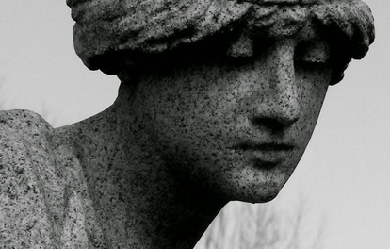
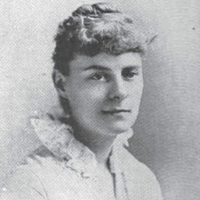
Lizette Woodworth Reese (January 9, 1856– December 17, 1935) was an American poet. Reese was born in the Waverly section of Baltimore, Maryland to Louisa Gabler and David Reese. She also had a twin sister named Sophia. Educated in Baltimore’s public schools, Reese graduated from Eastern High School (Baltimore), where a memorial for her stands today. After graduation, she became a school teacher at St. John’s Parish School in 1873. The following year, Reese published her first poem, “The Deserted House,” in Southern Magazine. She continued to publish in various magazines until her first self-published anthology, A Branch of May, in 1887. Subsequent books followed in 1891 and 1896, A Handful of Lavender and A Quiet Road, respectively. During the late 1890s and early 1900s, Reese wrote infrequently. However, her sonnet, “Tears,” published in Scribner’s Magazine in 1899, garnered her praise and recognition, particularly from fellow Baltimore writer, H. L. Mencken, who stated that Reese’s work was “one of the imperishable glories of American literature." In 1918, Reese retired from teaching after having worked her last few years at Western High School (Baltimore). In 1931, Reese was named poet laureate of Maryland by the General Federation of Women’s Clubs. She was also honorary president of thee Poetry Society of Maryland and co-founder of the Women’s Literary Club of Baltimore. Reese died on December 17, 1935. She is buried at the St. John’s Episcopal Church. After her death, Reese’s friend and sculptor, Grace Turnbull was commissioned to create a monument to her work. The marble statue, entitled “The Good Shepherd” stands on the old grounds of Eastern High School, Reese’s alma mater, in Waverly.
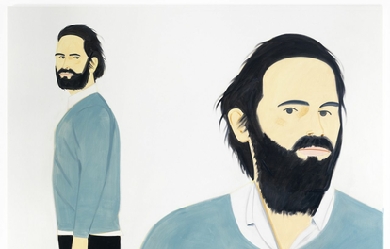
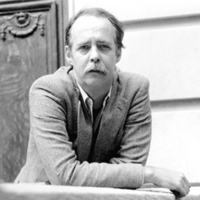
William Matthews (November 11, 1942– November 12, 1997) was an American poet and essayist. Born and raised in Cincinnati, Ohio, Matthews attended Berkshire School and later earned a bachelor’s degree from Yale University as well as a master’s from the University of North Carolina at Chapel Hill.
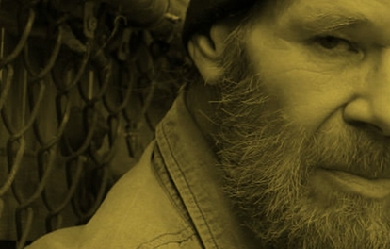
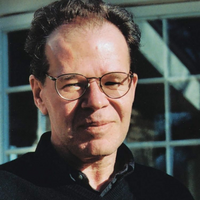
Franz Wright (March 18, 1953– May 14, 2015) was an American poet. He and his father James Wright are the only parent/child pair to have won the Pulitzer Prize in the same category. Life and career Wright was born in Vienna, Austria. He graduated from Oberlin College in 1977. Wheeling Motel (Knopf, 2009), had selections put to music for the record Readings from Wheeling Motel. Wright wrote the lyrics to and performs the Clem Snide song "Encounter at 3AM" on the album Hungry Bird (2009). Wright’s most recent books include Kindertotenwald (Knopf, 2011), a collection of sixty-five prose poems concluding with a love poem to his wife, written while Wright had terminal lung cancer. The poem won Poetry magazine’s premier annual literary prize for best work published in the magazine during 2011. The prose poem collection was followed in 2012 by Buson: Haiku, a collection of translations of 30 haiku by the Japanese poet Yosa Buson, published in a limited edition of a few hundred copies by Tavern Books. . In 2013 Wright’s primary publisher, Knopf in New York, brought out another full length collection of verse and prose poems, F, which was begun in the ICU of a Boston hospital after excision of part of a lung. F was the most positively received to any of Wright’s work. Writing in the Huffington Post, Anis Shivani placed it among the best books of poetry yet produced by an American, and called Wright “our greatest contemporary poet.” In 2013 Wright recorded 15 prose poems from Kindertotenwald for inclusion in a series of improvisational concerts performed in European venues, arranged by David Sylvian, Stephan Mathieu and Christian Fennesz. Prior to his death, Wright had been working on a new manuscript. First its name was “Changed,” then “Axe in Blossom,” and has probably ended up taking the form of a chapbook available as of 2016, entitled, “The Toy Throne.” Wright has been anthologised in works such as The Best of the Best American Poetry as well as Czeslaw Milosz’s anthology A Book of Luminous Things Bearing the Mystery: Twenty Years of Image, and American Alphabets: 25 Contemporary Poets. Death Wright died of cancer at his home in Waltham, Massachusetts on May 14, 2015. Criticism Writing in the New York Review of Books, Helen Vendler said "Wright’s scale of experience, like Berryman’s, runs from the homicidal to the ecstatic... [His poems’] best forms of originality [are] deftness in patterning, startling metaphors, starkness of speech, compression of both pain and joy, and a stoic self-possession with the agonies and penalties of existence." Novelist Denis Johnson has said Wright’s poems “are like tiny jewels shaped by blunt, ruined fingers—miraculous gifts.” The Boston Review has called Wright’s poetry “among the most honest, haunting, and human being written today.” Critic Ernest Hilbert wrote for Random House’s magazine Bold Type that “Wright oscillates between direct and evasive dictions, between the barroom floor and the arts club podium, from aphoristic aside to icily poetic abstraction.” Walking to Martha’s Vineyard (2003) in particular, was well received. According to Publishers Weekly, the collection features "[h]eartfelt but often cryptic poems... fans will find Wright’s self-diagnostics moving throughout." The New York Times noted that Wright promises, and can deliver, great depths of feeling, while observing that Wright depends very much on our sense of his tone, and on our belief not just that he means what he says but that he has said something new...[on this score] Walking to Martha’s Vineyard sometimes succeeds.” Poet Jordan Davis, writing for The Constant Critic, suggested that Wright’s collection was so accomplished it would have to be kept “out of the reach of impulse kleptomaniacs.” Added Davis, “deader than deadpan, any particular Wright poem may not seem like much, until, that is, you read a few of them. Once the context kicks in, you may find yourself trying to track down every word he’s written.” Some critics were less welcoming. According to New Criterion critic William Logan, with whom Wright would later publicly feud, "[t]his poet is surprisingly vague about the specifics of his torment (most of his poems are shouts and curses in the dark). He was cruelly affected by the divorce of his parents, though perhaps after forty years there should be a statute of limitation... ‘The Only Animal,’ the most accomplished poem in the book, collapses into the same kitschy sanctimoniousness that puts nodding Jesus dolls on car dashboards." “Wright offers the crude, unprocessed sewage of suffering”, he comments. “He has drunk harder and drugged harder than any dozen poets in our health-conscious age, and paid the penalty in hospitals and mental wards.” The critical reception of Wright’s 2011 collection, Kindertotenwald (Knopf), has been positive on the whole. Writing in the Washington Independent Book Review, Grace Cavalieri speaks of the book as a departure from Wright’s best known poems. “The prose poems are intriguing thought patterns that show poetry as mental process... This is original material, and if a great poet cannot continue to be original, then he is really not all that great... In this text there is a joyfulness that energizes and makes us feel the writing as a purposeful surge. It is a life force. This is a good indicator of literary art... Memory and the past, mortality, longing, childhood, time, space, geography and loneliness, are all the poet’s playthings. In these conversations with himself, Franz Wright shows how the mind works with his feelings and his brain’s agility in its struggle with the heart.” Cultural critic for the Chicago Tribune Julia Keller says that Kindertotenwald is “ultimately about joy and grace and the possibility of redemption, about coming out whole on the other side of emotional catastrophe.” “This collection, like all of Wright’s book, combines familiar, colloquial phrases—the daily lingo you hear everywhere—with the sudden sharpness of a phrase you’ve never heard anywhere, but that sounds just as familiar, just as inevitable. These pieces are written in closely packed prose, like miniature short stories, but they have a fierce lilting beauty that marks them as poetry. Reading 'Kindertotenwald’ is like walking through a plate-glass window on purpose. There is—predictably—pain, but once you’ve made it a few steps past the threshold, you realize it wasn’t glass after all, only air, and that the shattering sound you heard was your own heart breaking. Healing, though, is possible. ”Soon, soon," the poet writes in “Nude With Handgun and Rosary,” “between one instant and the next, you will be well.” Awards * 1985, 1992 National Endowment for the Arts grant * 1989 Guggenheim Fellowship * 1991 Whiting Award * 1996 PEN/Voelcker Award for Poetry * 2004 Pulitzer Prize for Poetry, for Walking to Martha’s Vineyard Selected works * * The Writing, Argos Books, 2015, ISBN 978-1-938247-09-5 * F, Knopf, 2013 * Kindertotenwald Alfred A. Knopf, 2011, ISBN 978-0-307-27280-5 * "7 Prose", Marick Press, 2010, ISBN 978-1934851-17-3 * Wheeling Motel Alfred A. Knopf, 2009, ISBN 9780307265685 * Earlier Poems, Random House, Inc., 2007, ISBN 978-0-307-26566-1 * God’s Silence, Knopf, 2006, ISBN 978-1-4000-4351-4 * Walking to Martha’s Vineyard Alfred A. Knopf, 2003, ISBN 978-0-375-41518-0 * The Beforelife A.A. Knopf, 2001, ISBN 978-0-375-41154-0 * Knell Short Line Editions, 1999 * ILL LIT: Selected & New Poems Oberlin College Press, 1998, ISBN 978-0-932440-83-9 * Rorschach test, Carnegie Mellon University Press, 1995, ISBN 978-0-88748-209-0 * The Night World and the Word Night Carnegie Mellon University Press, 1993, ISBN 978-0-88748-154-3 * Entry in an Unknown Hand Carnegie Mellon University Press, 1989, ISBN 978-0-88748-078-2 * Going North in Winter Gray House Press, 1986 * The One Whose Eyes Open When You Close Your Eyes Pym-Randall Press, 1982, ISBN 978-0-913219-35-5 * 8 Poems (1982) * The Earth Without You Cleveland State University Poetry Center, 1980, ISBN 9780914946236 * Tapping the White Cane of Solitude (1976) Translations * * The Unknown Rilke: Selected Poems, Rainer Maria Rilke, Translator Franz Wright, Oberlin College Press, 1990, ISBN 978-0-932440-56-3 * Valzhyna Mort: Factory of Tears (Copper Canyon Press, 2008) (translated from the Belarusian language in collaboration with the author and Elizabeth Oehlkers Wright) * “The Unknown Rilke: Expanded Edition” (1991) * “No Siege is Absolute: Versions of Rene Char” (1984) * "Buson: Haiku (2012) The Life of Mary (poems of R.M. Rilke) (1981) References Wikipedia—https://en.wikipedia.org/wiki/Franz_Wright
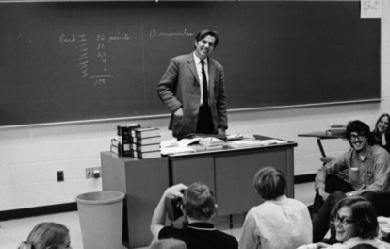
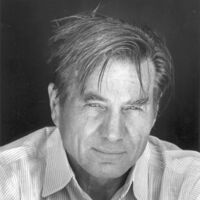
Galway Kinnell (February 1, 1927 – October 28, 2014) was an American poet. For his 1982 Selected Poems he won the Pulitzer Prize for Poetry and split the National Book Award for Poetry with Charles Wright. From 1989 to 1993 he was poet laureate for the state of Vermont. An admitted follower of Walt Whitman, Kinnell rejects the idea of seeking fulfillment by escaping into the imaginary world. His best-loved and most anthologized poems are "St. Francis and the Sow" and "After Making Love We Hear Footsteps". Born in Providence, Rhode Island, Kinnell said that as a youth he was turned on to poetry by Edgar Allan Poe and Emily Dickinson, drawn to both the musical appeal of their poetry and the idea that they led solitary lives. The allure of the language spoke to what he describes as the homogeneous feel of his hometown, Pawtucket, Rhode Island. He has also described himself as an introvert during his childhood. Kinnell studied at Princeton University, graduating in 1948 alongside friend and fellow poet W.S. Merwin. He received his master of arts degree from the University of Rochester. He traveled extensively in Europe and the Middle East, and went to Paris on a Fulbright Fellowship. During the 1960s, the Civil Rights Movement in the United States caught his attention. Upon returning to the US, he joined CORE (Congress of Racial Equality) and worked on voter registration and workplace integration in Hammond, Louisiana. This effort got him arrested. In 1968, he signed the “Writers and Editors War Tax Protest” pledge, vowing to refuse tax payments in protest against the Vietnam War. Kinnell draws upon both his involvement with the civil rights movement and his experiences protesting against the Vietnam War in his book-long poem The Book of Nightmares. From 1989 to 1993 he was poet laureate for the state of Vermont. Kinnell was the Erich Maria Remarque Professor of Creative Writing at New York University and a Chancellor of the American Academy of Poets. As of 2011 he was retired and resided at his home in Vermont until his death in October of 2014 from leukemia. Work While much of Kinnell's work seems to deal with social issues, it is by no means confined to one subject. Some critics have pointed to the spiritual dimensions of his poetry, as well as the nature imagery present throughout his work. “The Fundamental Project of Technology” deals with all three of those elements, creating an eerie, chant-like and surreal exploration of the horrors atomic weapons inflict on humanity and nature. Sometimes Kinnell utilizes simple and brutal images (“Lieutenant! / This corpse will not stop burning!” from “The Dead Shall be Raised Incorruptible”) to address his anger at the destructiveness of humanity, informed by Kinnell’s activism and love of nature. There’s also a certain sadness in all of the horror—“Nobody would write poetry if the world seemed perfect.” There’s also optimism and beauty in his quiet, ponderous language, especially in the large role animals and children have in his later work (“Other animals are angels. Human babies are angels”), evident in poems such as “Daybreak” and “After Making Love We Hear Footsteps”. In addition to his works of poetry and his translations, Kinnell published one novel (Black Light, 1966) and one children's book (How the Alligator Missed Breakfast, 1982). Kinnell wrote two elegies for his close friend, the poet James Wright, upon the latter's death in 1980. They appear in From the Other World: Poems in Memory of James Wright. References Wikipedia – http://en.wikipedia.org/wiki/Galway_Kinnell


Edward Hirsch (born January 20, 1950) is an American poet and critic who wrote a national bestseller about reading poetry. He has published nine books of poems, including The Living Fire: New and Selected Poems (2010), which brings together thirty-five years of work, and Gabriel: A Poem (2014), a book-length elegy for his son that The New Yorker calls “a masterpiece of sorrow.” He has also published five prose books about poetry. He is president of the John Simon Guggenheim Memorial Foundation in New York City (not to be mistaken with E.D. Hirsch, Jr.). Life Hirsch was born in Chicago. He had a childhood involvement with poetry, which he later explored at Grinnell College and the University of Pennsylvania, where he received a Ph.D. in folklore. Hirsch was a professor of English at Wayne State University. In 1985, he joined the faculty at the University of Houston, where he spent 17 years as a professor in the Creative Writing Program and Department of English. He was appointed the fourth president of the John Simon Guggenheim Foundation on September 3, 2002. He holds seven honorary degrees. Career Hirsch is a well-known advocate for poetry whose essays have been published in the American Poetry Review, The New York Times Book Review, The New York Review of Books, and elsewhere. He wrote a weekly column on poetry for The Washington Post Book World from 2002-2005, which resulted in his book Poet’s Choice (2006). His other prose books include Responsive Reading (1999), The Demon and the Angel: Searching for the Source of Artistic Inspiration (2002), and A Poet’s Glossary (2014), a complete compendium of poetic terms. He is the editor of Transforming Vision: Writers on Art (1994), Theodore Roethke’s Selected Poems (2005) and To a Nightingale (2007). He is the co-editor of A William Maxwell Portrait: Memories and Appreciations and The Making of a Sonnet: A Norton Anthology (2008). He also edits the series “The Writer’s World” (Trinity University Press). Hirsch’s first collection of poems, For the Sleepwalkers, received the Lavan Younger Poets Award from the Academy of American Poets and the Delmore Schwartz Memorial Award from New York University. His second book, Wild Gratitude, received the National Book Critics Circle Award in 1986. He was awarded a Guggenheim Fellowship in 1985 and a five-year MacArthur Fellowship in 1997. He received the William Riley Parker Prize from the Modern Language Association for the best scholarly essay in PMLA for the year 1991. He has also received an Ingram Merrill Foundation Award, a National Endowment for the Arts Fellowship, the Rome Prize from the American Academy in Rome, a Pablo Neruda Presidential Medal of Honor, and the American Academy of Arts and Letters Award for Literature. He is a former Chancellor of the Academy of American Poets. Hirsch’s book, How to Read a Poem and Fall in Love with Poetry (1999), was a surprise bestseller and is widely taught throughout the country. Works Poetry collections * For the Sleepwalkers, (New York: Alfred A. Knopf, 1981) * Wild Gratitude, (New York: Alfred A. Knopf, 1986) * The Night Parade, (New York: Alfred A. Knopf, 1989) * Earthly Measures, (New York: Alfred A. Knopf, 1994) ISBN 0-679-76566-2 * On Love, (New York: Alfred A. Knopf, 1998) * Lay Back the Darkness (New York: Alfred A. Knopf, 2003) ISBN 0-375-41521-1 * Special Orders (New York: Alfred A. Knopf, 2008) ISBN 0-307-26681-8 * Gabriel A Poem (New York: Alfred A. Knopf, 2014) ISBN 978-0-385-35357-1 Non-fiction books * Transforming Vision: Writers on Art, Selected and Introduced by Edward Hirsch, (Boston: Little, Brown, 1994) ISBN 0-8212-2126-4 * How to Read a Poem and Fall in Love with Poetry, (New York: Harcourt Brace, 1999) ISBN 0-15-100419-6 * Responsive Reading, (1999) * 'Introduction’ in John Keats, Complete Poems and Selected Letters of John Keats, (New York: Modern Library, 2001) ISBN 0-375-75669-8 * The Demon and the Angel: Searching for the Source of Artistic Expression, (New York: Harcourt Brace, 2002) * Poet’s Choice, (New York: Harcourt, 2006) ISBN 0-15-101356-X * A Poet’s Glossary, (Boston & New York: Houghton Mifflin Harcourt, 2014) ISBN 978-0-15-101195-7 Editor * Transforming Vision: Writers on Art, (The Art Institute of Chicago/ Bulfinch Press, 1994) ISBN 978-0821221266 * A William Maxwell Portrait, (Norton, 2004) ISBN 978-0393057713 * Theodore Roethke: Selected Poems, (The Library of America, 2005) ISBN 978-1931082785 * Irish Writers on Writing, edited with Eavan Boland, (Trinity University Press, 2007) ISBN 9781595340320 * Polish Writers on Writing, edited with Adam Zagajewski, (Trinity University Press, 2007) ISBN 9781595340337 * To a Nightingale: Poems from Sappho to Borges, (Braziller, 2007) ISBN 978-0807616277 * The Making of a Sonnet, (Norton, 2008) ISBN 978-0393333534 * Hebrew Writers on Writing, edited with Peter Cole (Trinity University Press, 2008) ISBN 9781595340528 * Nineteenth-Century American Writers on Writing, edited with Brenda Wineapple (Trinity University Press, 2010) ISBN 9781595340696 * Chinese Writers on Writing, edited with Arthur Sze (Trinity University Press, 2010) ISBN 9781595340634 * Romanian Writers on Writing, edited with Norman Manea, (Trinity University Press, 2011) ISBN 9781595340825 References Wikipedia—https://en.wikipedia.org/wiki/Edward_Hirsch

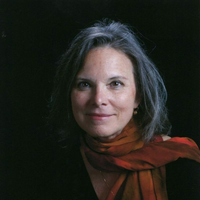
Carolyn Forché (born April 28, 1950) is an American poet, editor, translator, and human rights advocate. She has received awards for her literary work. Biography Forché was born in Detroit, Michigan to Michael Joseph and Louise Nada Blackford Sidlosky. Forché earned a Bachelor of Arts (B.A) in Creative Writing at Michigan State University in 1972, and MFA at Bowling Green State University in 1974. She taught at a number of universities, including Bowling Green State University, Michigan State University, the University of Virginia, Skidmore College, Columbia University, San Diego State University and in the Master of Fine Arts program at George Mason University. She is now Director of the Lannan Center for Poetry and Poetics and holds the Lannan Chair in Poetry at Georgetown University in Washington, D.C. She lives in Maryland with her husband, Harry Mattison, a photographer, whom she married in 1984. Career Forché's first poetry collection, Gathering the Tribes (1976), won the Yale Series of Younger Poets Competition, leading to publication by Yale University Press. In 1977, she traveled to Spain to translate the work of Salvadoran-exiled poet Claribel Alegría. She has also translated the work of Georg Trakl and Mahmoud Darwish, as well as many others. Upon her return from Spain, she received a Guggenheim Fellowship, which enabled her to travel to El Salvador, where she worked as a human rights advocate. Her second book, The Country Between Us (1981), was published with the help of Margaret Atwood. It received the Poetry Society of America’s Alice Fay di Castagnola Award, and was also the Lamont Poetry Selection of the Academy of American Poets. She won the 2006 Robert Creeley Award. Her articles and reviews have appeared in The New York Times, The Washington Post, The Nation, Esquire, Mother Jones, Boston Review, and others. Forché has held three fellowships from the National Endowment for the Arts, and in 1992 received a Lannan Foundation Literary Fellowship. Her anthology, Against Forgetting: Twentieth-Century Poetry of Witness, was published in 1993, and her third book of poetry, The Angel of History (1994), was chosen for The Los Angeles Times Book Award. Her works include the famed poem The Colonel (The Country Between Us). She is also a trustee for the Griffin Poetry Prize. Although Forché is sometimes described as a political poet, she considers herself a poet who is politically engaged. After first acquiring both fame and notoriety for her second volume of poems, The Country Between Us, she pointed out that this reputation rested on a limited number of poems describing what she personally had experienced in El Salvador during the Salvadoran Civil War. Her aesthetic is more one of rendered experience and at times of mysticism rather than one of ideology or agitprop. Forché is particularly interested in the effect of political trauma on the poet’s use of language. The anthology Against Forgetting was intended to collect the work of poets who had endured the impress of extremity during the 20th century, whether through their engagements or force of circumstance. These experiences included warfare, military occupation, imprisonment, torture, forced exile, censorship, and house arrest. The anthology, composed of the work of one hundred and forty-five poets writing in English and translated from over thirty languages, begins with the Armenian Genocide and ends with the uprising of the pro-Democracy movement at Tiananmen Square. Although she was not guided in her selections by the political or ideological persuasions of the poets, Forché believes the sharing of painful experience to be radicalizing, returning the poet to an emphasis on community rather than the individual ego. In this she was strongly influenced by Terrence des Pres. Forché is also influenced by her Slovak family background, particularly the life story of her grandmother, an immigrant whose family included a woman resistance fighter imprisoned during the Nazi occupation of former Czechoslovakia. Forché was raised Roman Catholic and religious themes are frequent in her work. Among her translations are Mahmoud Darwish’s Unfortunately, It Was Paradise: Selected Poems (2003), Claribel Alegría’s Sorrow (1999), and Robert Desnos’s Selected Poetry (with William Kulik, for the Modern English Poetry Series, 1991). Her fourth book of poems, Blue Hour, was released in 2003. Other books include a memoir, The Horse on Our Balcony (2010, HarperCollins); a book of essays (2011, HarperCollins); and a fifth collection of poems, In the Lateness of the World (Bloodaxe Books, due out in 2017). Forché received an honorary doctorate from the University of Scranton in 2010.
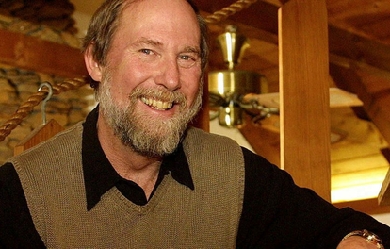
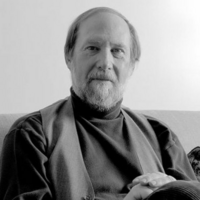
Stephen Dunn (born 1939) is an American poet and educator. Dunn has written fifteen collections of poetry. He won the Pulitzer Prize for Poetry for his 2001 collection, Different Hours and has received an Academy Award in Literature from the American Academy of Arts and Letters. Among his other awards are three National Endowment for the Arts Creative Writing Fellowships, Guggenheim Fellowship, and Rockefeller Foundations Fellowship. A collection of essays about Dunn’s poetry was published in 2013. Life He was born in Forest Hills, Queens, New York. Dunn completed his B.A. in English at Hofstra University and his M.A. in creative writing at Syracuse University. He has taught at Wichita State University, University of Washington, Columbia University, University of Michigan, Princeton University, and at Stockton University. Dunn had earlier lived in Port Republic, New Jersey, and now spends time at homes in Ocean City, New Jersey, and his wife’s hometown of Frostburg, Maryland. Bibliography * Five Impersonations, Ox Head Press (Marshall, MN), 1971. OCLC 656950 * Looking for Holes in the Ceiling: Poems, University of Massachusetts Press (Amherst, MA), 1974. ISBN 9780870231544 * Full of Lust and Good Usage, Carnegie-Mellon University Press (Pittsburgh, PA), 1976. ISBN 9780915604074 * A Circus of Needs, Carnegie-Mellon University Press (Pittsburgh, PA), 1978. ISBN 9780915604500 * Work and Love, Carnegie-Mellon University Press (Pittsburgh, PA), 1981. ISBN 9780915604609 * Not Dancing, Carnegie-Mellon University Press (Pittsburgh, PA), 1984. ISBN 9780887480003 * Local Time, Quill/Morrow (New York, NY), 1986. ISBN 9780688062965 * Between Angels: Poems, W. W. Norton & Company (New York, NY), 1989. ISBN 9780393026917 * Landscape at the End of the Century: Poems, W. W. Norton & Company (New York, NY), 1991. ISBN 9780393029727 * New and Selected Poems: 1974-1994, W. W. Norton & Company (New York, NY), 1994. * Loosestrife: Poems, W. W. Norton & Companyn (New York, NY), 1996. * Riffs & Reciprocities: Prose Pairs, W. W. Norton & Company (New York, NY), 1998. * Different Hours, W. W. Norton & Company (New York, NY), 2000. ISBN 9780393322323 * Walking Light: Memoirs and Essays on Poetry, BOA Editions, Ltd., 2001. ISBN 9781929918003 * The Insistence of Beauty: Poems, W. W. Norton & Company (New York, NY), 2004. ISBN 9780393059557 * Local Visitations: Poems, Norton, 2004, ISBN 9780393326031 * Everything Else in the World, W. W. Norton & Company (New York, NY), 2006. * What Goes On: Selected and New Poems 1995-2009, W. W. Norton (New York, NY), 2009. * Here and Now: Poems, W. W. Norton & Company (New York, NY), 2011. ISBN 9780393080216 * Lines of Defense, W. W. Norton & Company (New York, NY), 2014. ISBN 9780393240818 References Wikipedia—https://en.wikipedia.org/wiki/Stephen_Dunn

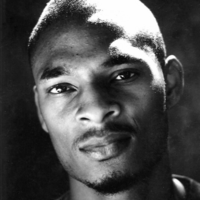
Terrance Hayes (born November 18, 1971) is an American poet and educator who has published five poetry collections. His 2010 collection, Lighthead, won the National Book Award for Poetry in 2010. In September 2014, he was one of 21 recipients of the prestigious MacArthur fellowships awarded to individuals who show outstanding creativity in their work. Life and education Hayes was born in Columbia, South Carolina. He received a B.A. from Coker College and an M.F.A. from the University of Pittsburgh writing program. He was a Professor of Creative Writing at Carnegie Mellon University until 2013, at which time he joined the faculty at the English Department at the University of Pittsburgh. He lives in Pittsburgh with his wife, the poet Yona Harvey, who also serves as a professor at the University of Pittsburgh, and their children. Works * Hayes first book of poetry, Muscular Music (1999), won both a Whiting Award and the Kate Tufts Discovery Award. His second collection, Hip Logic (2002), won the National Poetry Series, was a finalist for the Los Angeles Times Book Award, and runner-up for the James Laughlin Award from the Academy of American Poets. He won the National Book Award for Lighthead. * Hayes poems have appeared in literary journals and magazines including The New Yorker, The American Poetry Review, Ploughshares, Fence, The Kenyon Review, Jubilat Harvard Review, West Branch, Poetry, and The Adroit Journal’. * In praising Hayes’s work, Cornelius Eady has said: “First you’ll marvel at his skill, his near-perfect pitch, his disarming humor, his brilliant turns of phrase. Then you’ll notice the grace, the tenderness, the unblinking truth-telling just beneath his lines, the open and generous way he takes in our world.” * In September 2014, he was honored as one of the 21 2014 fellows of the John D. and Catherine T. MacArthur Foundation. The fellowship comes with a $625,000 stipend over five years and is one of the most prestigious prizes that is awarded for artists, scholars and professionals. * In January 2017, Hayes was elected a Chancellor of the Academy of American Poets. Awards * * 2014 MacArthur Foundation Fellow * 2011 United States Artists Zell Fellow for Literature * 2010 National Book Award for Poetry, for Lighthead * Pushcart Prize, a Best American Poetry 2005 selection * National Endowment for the Arts Fellowship * 2009 Guggenheim Fellowship * James Laughlin Award runner-up, from the Academy of American Poets * Kate Tufts Discovery Award for Muscular Music (1999) * 2001 National Poetry Series, for Hip Logic * 1999 Whiting Award Poetry collections * * How to Be Drawn (Penguin Books, 2015) * Lighthead (Penguin Books, 2010)—winner of the National Book Award * Wind in a Box. Penguin Books. 2006. ISBN 9781440626982. * Hip Logic. Penguin Books. 2002. ISBN 978-0-14-200139-4. * Muscular Music (Tia Chucha Press, 1999; reissued by Carnegie Mellon University Press, 2006) References Wikipedia—https://en.wikipedia.org/wiki/Terrance_Hayes
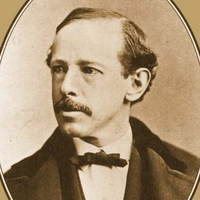
Horatio Alger Jr. (January 13, 1832 – July 18, 1899) was an American writer, best known for his many young adult novels about impoverished boys and their rise from humble backgrounds to lives of middle-class security and comfort through hard work, determination, courage, and honesty. His writings were characterized by the “rags-to-riches” narrative, which had a formative effect on the United States during the Gilded Age. All of Alger’s juvenile novels share essentially the same theme, known as the “Horatio Alger myth”: a teenage boy works hard to escape poverty. Often it is not hard work that rescues the boy from his fate but rather some extraordinary act of bravery or honesty. The boy might return a large sum of lost money or rescue someone from an overturned carriage. This brings the boy—and his plight—to the attention of a wealthy individual. Alger secured his literary niche in 1868 with the publication of his fourth book, Ragged Dick, the story of a poor bootblack’s rise to middle-class respectability. This novel was a huge success. His many books that followed were essentially variations on Ragged Dick and featured casts of stock characters: the valiant hard-working, honest youth, the noble mysterious stranger, the snobbish youth, and the evil, greedy squire. In the 1870s, Alger’s fiction was growing stale. His publisher suggested he tour the American West for fresh material to incorporate into his fiction. Alger took a trip to California, but the trip had little effect on his writing: he remained mired in the tired theme of “poor boy makes good.” The backdrops of these novels, however, became the American West rather than the urban environments of the northeastern United States. In the last decades of the 19th century, Alger’s moral tone coarsened with the change in boys’ tastes. Sensational thrills were wanted by the public. The Protestant work ethic had loosened its grip on the United States, and violence, murder, and other sensational themes entered Alger’s works. Public librarians questioned whether his books should be made available to the young. They were briefly successful, but interest in Alger’s novels was renewed in the first decades of the 20th century, and they sold in the thousands. By the time he died in 1899, Alger had published around a hundred volumes. He is buried in Natick, Massachusetts. Since 1947, the Horatio Alger Association of Distinguished Americans has awarded scholarships and prizes to deserving individuals. Biography Childhood: 1832–1847 Alger was born on January 13, 1832, in the New England coastal town of Chelsea, Massachusetts, the son of Horatio Alger Sr., a Unitarian minister, and Olive Augusta Fenno.He had many connections with the New England Puritan aristocracy of the early 19th century: He was the descendant of Pilgrim Fathers Robert Cushman, Thomas Cushman, and William Bassett. He was also the descendant of Sylvanus Lazell, a Minuteman and brigadier general in the War of 1812, and Edmund Lazell, a member of the Constitutional Convention in 1788.Horatio’s siblings Olive Augusta and James were born in 1833 and 1836, respectively. An invalid sister, Annie, was born in 1840, and a brother, Francis, in 1842. Alger was a precocious boy afflicted with myopia and asthma, but Alger Sr. decided early that his eldest son would one day enter the ministry, and, to that end, he tutored the boy in classical studies and allowed him to observe the responsibilities of ministering to parishioners.Alger began attending Chelsea Grammar School in 1842, but by December 1844 his father’s financial troubles had worsened considerably and, in search of a better salary, he moved the family to Marlborough, Massachusetts, an agricultural town 25 miles west of Boston, where he was installed as pastor of the Second Congregational Society in January 1845 with a salary sufficient to meet his needs. Horatio attended Gates Academy, a local preparatory school, and completed his studies at age 15. He published his earliest literary works in local newspapers. Harvard and early works: 1848–1864 In July 1848, Alger passed the Harvard entrance examinations and was admitted to the class of 1852. The 14-member, full-time Harvard faculty included Louis Agassiz and Asa Gray (sciences), Cornelius Conway Felton (classics), James Walker (religion and philosophy), and Henry Wadsworth Longfellow (belles-lettres). Edward Everett served as president. Alger’s classmate Joseph Hodges Choate described Harvard at this time as “provincial and local because its scope and outlook hardly extended beyond the boundaries of New England; besides which it was very denominational, being held exclusively in the hands of Unitarians”. Alger thrived in the highly disciplined and regimented Harvard environment, winning scholastic and other prestigious awards. His genteel poverty and less-than-aristocratic heritage, however, barred him from membership in the Hasty Pudding Club and the Porcellian Club. In 1849 he became a professional writer when he sold two essays and a poem to the Pictorial National Library, a Boston magazine. He began reading Walter Scott, James Fenimore Cooper, Herman Melville, and other modern writers of fiction and cultivated a lifelong love for Longfellow, whose verse he sometimes employed as a model for his own. He was chosen Class Odist and graduated with Phi Beta Kappa Society honors in 1852, eighth in a class of 88.Alger had no job prospects following graduation, and returned home. He continued to write, submitting his work to religious and literary magazines, with varying success. He briefly attended Harvard Divinity School in 1853, possibly to be reunited with a romantic interest, but left in November 1853 to take a job as an assistant editor at the Boston Daily Advertiser. He loathed editing and quit in 1854 to teach at The Grange, a boys’ boarding school in Rhode Island. When The Grange suspended operations in 1856, Alger found employment directing the 1856 summer session at Deerfield Academy.His first book, Bertha’s Christmas Vision: An Autumn Sheaf, a collection of short pieces, was published in 1856, and his second book, Nothing to Do: A Tilt at Our Best Society, a lengthy satirical poem, was published in 1857. He attended Harvard Divinity School from 1857 to 1860, and upon graduation, toured Europe. In the spring of 1861, he returned to a nation in the throes of the Civil War. Exempted from military service for health reasons in July 1863, he wrote in support of the Union cause and associated with New England intellectuals. He was elected an officer in the New England Historic Genealogical Society in 1863.His first novel, Marie Bertrand: The Felon’s Daughter, was serialized in New York Weekly in 1864, and his first boys’ book, Frank’s Campaign, was published by A. K. Loring in Boston the same year. Alger initially wrote for adult magazines, including Harper’s Magazine and Frank Leslie’s Illustrated Newspaper, but a friendship with William Taylor Adams, a boys’ author, led him to write for the young. Ministry: 1864–1866 On December 8, 1864, Alger was installed as a pastor with the First Unitarian Church and Society of Brewster, Massachusetts. Between ministerial duties, he organized games and amusements for boys in the parish, railed against smoking and drinking, and organized and served as president of the local chapter of the Cadets for Temperance. He submitted stories to Student and Schoolmate, a boys’ monthly magazine of moral writings, edited by William Taylor Adams and published in Boston by Joseph H. Allen. In September 1865 his second boys’ book, Paul Prescott’s Charge, was published and received favorable reviews. Child sexual abuse Early in 1866 a church committee of men was formed to investigate reports that Alger had sexually molested boys. Church officials reported to the hierarchy in Boston that Alger had been charged with “the abominable and revolting crime of gross familiarity with boys”. Alger denied nothing, admitted he had been imprudent, considered his association with the church dissolved, and left town. Alger sent Unitarian officials in Boston a letter of remorse, and his father assured them his son would never seek another post in the church. The officials were satisfied and decided no further action would be taken. New York City: 1866–1896 Alger relocated to New York City, abandoned forever any thought of a career in the church, and focused instead on his writing. He wrote “Friar Anselmo” at this time, a poem that tells of a sinning cleric’s atonement through good deeds. He became interested in the welfare of the thousands of vagrant children who flooded New York City following the Civil War. He attended a children’s church service at Five Points, which led to “John Maynard”, a ballad about an actual shipwreck on Lake Erie, which brought Alger not only the respect of the literati but a letter from Longfellow. He published two poorly received adult novels, Helen Ford and Timothy Crump’s Ward. He fared better with stories for boys published in Student and Schoolmate and a third boys’ book, Charlie Codman’s Cruise.In January 1867 the first of 12 installments of Ragged Dick appeared in Student and Schoolmate. The story, about a poor bootblack’s rise to middle-class respectability, was a huge success. It was expanded and published as a novel in 1868. It proved to be his best-selling work. After Ragged Dick he wrote almost entirely for boys, and he signed a contract with publisher Loring for a Ragged Dick Series. In spite of the series’ success, Alger was on financially uncertain ground and tutored the five sons of the international banker Joseph Seligman. He wrote serials for Young Israel and lived in the Seligman home until 1876. In 1875 Alger produced the serial Shifting for Himself and Sam’s Chance, a sequel to The Young Outlaw. It was evident in these books that Alger had grown stale. Profits suffered, and he headed West for new material at Loring’s behest, arriving in California in February 1877. He enjoyed a reunion with his brother James in San Francisco and returned to New York late in 1877 on a schooner that sailed around Cape Horn. He wrote a few lackluster books in the following years, rehashing his established themes, but this time the tales were played before a Western background rather than an urban one.In New York, Alger continued to tutor the town’s aristocratic youth and to rehabilitate boys from the streets. He was writing both urban and Western-themed tales. In 1879, for example, he published The District Messenger Boy and The Young Miner. In 1877, Alger’s fiction became a target of librarians concerned about sensational juvenile fiction. An effort was made to remove his works from public collections, but the debate was only partially successful, defeated by the renewed interest in his work after his death.In 1881, Alger informally adopted Charlie Davis, a street boy, and another, John Downie, in 1883; they lived in Alger’s apartment. In 1881, he wrote a biography of President James A. Garfield but filled the work with contrived conversations and boyish excitements rather than facts. The book sold well. Alger was commissioned to write a biography of Abraham Lincoln, but again it was Alger the boys’ novelist opting for thrills rather than facts.In 1882, Alger’s father died. Alger continued to produce stories of honest boys outwitting evil, greedy squires and malicious youths. His work appeared in hardcover and paperback, and decades-old poems were published in anthologies. He led a busy life with street boys, Harvard classmates, and the social elite. In Massachusetts, he was regarded with the same reverence as Harriet Beecher Stowe. He tutored with never a whisper of scandal. Last years: 1896–1899 In the last two decades of the 19th century, the quality of Alger’s books deteriorated, and his boys’ works became nothing more than reruns of the plots and themes of his past. The times had changed, boys expected more, and a streak of violence entered Alger’s work. In The Young Bank Messenger, for example, a woman is throttled and threatened with death—an episode that would never have occurred in his earlier work.He attended the theater and Harvard reunions, read literary magazines, and wrote a poem at Longfellow’s death in 1892. His last novel for adults, The Disagreeable Woman, was published under the pseudonym Julian Starr. He took pleasure in the successes of the boys he had informally adopted over the years, retained his interest in reform, accepted speaking engagements, and read portions of Ragged Dick to boys’ assemblies.His popularity—and income—dwindled in the 1890s. In 1896, he had what he called a “nervous breakdown”; he relocated permanently to his sister’s home in South Natick, Massachusetts.He suffered from bronchitis and asthma for two years. He died on July 18, 1899, at the home of his sister in Natick, Massachusetts. His death was barely noticed. He is buried in the family lot at Glenwood Cemetery, South Natick, Massachusetts.Before his death, Alger asked Edward Stratemeyer to complete his unfinished works. In 1901, Young Captain Jack was completed by Stratemeyer and promoted as Alger’s last work. Alger once estimated that he earned only $100,000 between 1866 and 1896; at his death he had little money, leaving only small sums to family and friends. His literary work was bequeathed to his niece, to two boys he had casually adopted, and to his sister Olive Augusta, who destroyed his manuscripts and his letters, according to his wishes.Alger’s works received favorable comments and experienced a resurgence following his death. Until the advent of the Jazz Age in the 1920s, he sold about seventeen to twenty million volumes. In 1926, however, reader interest plummeted, and his major publisher ceased printing the books altogether. Surveys in 1932 and 1947 revealed very few children had read or even heard of Alger. The first Alger biography was a heavily fictionalized account published in 1928 by Herbert R. Mayes, who later admitted the work was a fraud. Legacy Since 1947, the Horatio Alger Association of Distinguished Americans has bestowed an annual award on “outstanding individuals in our society who have succeeded in the face of adversity” and scholarships “to encourage young people to pursue their dreams with determination and perseverance”.In 1982 to mark his 150th birthday, the Children’s Aid Society held a celebration. Helen M. Gray, the executive director of the Horatio Alger Association of Distinguished Americans, presented a selection of Alger’s books to Philip Coltoff, the Children’s Aid Society executive director.A 1982 musical, Shine!, was based on Alger’s work, particularly Ragged Dick and Silas Snobden’s Office Boy.In 2015, many of Alger’s books were published as illustrated paperbacks and ebooks under the title “Stories of Success” by Horatio Alger. In addition, Alger’s books were offered as dramatic audiobooks by the same publisher. Style and themes Alger scholar Gary Scharnhorst describes Alger’s style as “anachronistic”, “often laughable”, “distinctive”, and “distinguished by the quality of its literary allusions”. Ranging from the Bible and William Shakespeare (half of Alger’s books contain Shakespearean references) to John Milton and Cicero, the allusions he employed were a testament to his erudition. Scharnhorst credits these allusions with distinguishing Alger’s novels from pulp fiction.Scharnhorst describes six major themes in Alger’s boys’ books. The first, the Rise to Respectability, he observes, is evident in both his early and his late books, notably Ragged Dick, whose impoverished young hero declares, “I mean to turn over a new leaf, and try to grow up 'spectable.” His virtuous life wins him not riches but, more realistically, a comfortable clerical position and salary. The second major theme is Character Strengthened Through Adversity. In Strong and Steady and Shifting for Himself, for example, the affluent heroes are reduced to poverty and forced to meet the demands of their new circumstances. Alger occasionally cited the young Abe Lincoln as a representative of this theme for his readers. The third theme is Beauty versus Money, which became central to Alger’s adult fiction. Characters fall in love and marry on the basis of their character, talents, or intellect rather than the size of their bank accounts. In The Train Boy, for example, a wealthy heiress chooses to marry a talented but struggling artist, and in The Erie Train Boy a poor woman wins her true love despite the machinations of a rich, depraved suitor. Other major themes include the Old World versus the New. All of Alger’s novels have similar plots: a boy struggles to escape poverty through hard work and clean living. However, it is not always the hard work and clean living that rescue the boy from his situation, but rather a wealthy older gentleman, who admires the boy as a result of some extraordinary act of bravery or honesty that the boy has performed. For example, the boy rescues a child from an overturned carriage or finds and returns the man’s stolen watch. Often the older man takes the boy into his home as a ward or companion and helps him find a better job, sometimes replacing a less honest or less industrious boy. According to Scharnhorst, Alger’s father was “an impoverished man” who defaulted on his debts in 1844. His properties around Chelsea were seized and assigned to a local squire who held the mortgages. Scharnhorst speculates this episode in Alger’s childhood accounts for the recurrent theme in his boys’ books of heroes threatened with eviction or foreclosure and may account for Alger’s “consistent espousal of environmental reform proposals”. Scharnhorst writes, “Financially insecure throughout his life, the younger Alger may have been active in reform organizations such as those for temperance and children’s aid as a means of resolving his status-anxiety and establish his genteel credentials for leadership.”Alger scholar Edwin P. Hoyt notes that Alger’s morality “coarsened” around 1880, possibly influenced by the Western tales he was writing, because “the most dreadful things were now almost casually proposed and explored”. Although he continued to write for boys, Alger explored subjects like violence and “openness in the relations between the sexes and generations”; Hoyt attributes this shift to the decline of Puritan ethics in America.Scholar John Geck notes that Alger relied on “formulas for experience rather than shrewd analysis of human behavior”, and that these formulas were “culturally centered” and “strongly didactic”. Although the frontier society was a thing of the past during Alger’s career, Geck contends that “the idea of the frontier, even in urban slums, provides a kind of fairy tale orientation in which a Jack mentality can be both celebrated and critiqued”. He claims that Alger’s intended audience were youths whose “motivations for action are effectively shaped by the lessons they learn”. Geck notes that perception of the “pluck” characteristic of an Alger hero has changed over the decades. During the Jazz Age and the Great Depression, “the Horatio Alger plot was viewed from the perspective of Progressivism as a staunch defense of laissez-faire capitalism, yet at the same time criticizing the cutthroat business techniques and offering hope to a suffering young generation during the Great Depression”. By the Atomic Age, however “Alger’s hero was no longer a poor boy who, through determination and providence rose to middle-class respectability. He was instead the crafty street urchin who through quick wits and luck rose from impoverishment to riches”. Geck observes that Alger’s themes have been transformed in modern America from their original meanings into a male Cinderella myth and are an Americanization of the traditional Jack tales. Each story has its clever hero, its “fairy godmother”, and obstacles and hindrances to the hero’s rise. “However”, he writes, “the true Americanization of this fairy tale occurs in its subversion of this claiming of nobility; rather, the Alger hero achieves the American Dream in its nascent form, he gains a position of middle-class respectability that promises to lead wherever his motivation may take him”. The reader may speculate what Cinderella achieved as Queen and what an Alger hero attained once his middle-class status was stabilized, and "[i]t is this commonality that fixes Horatio Alger firmly in the ranks of modern adaptors of the Cinderella myth". Personal life Scharnhorst writes that Alger “exercised a certain discretion in discussing his probable homosexuality” and was known to have mentioned his sexuality only once after the Brewster incident. In 1870 the elder Henry James wrote that Alger “talks freely about his own late insanity—which he in fact appears to enjoy as a subject of conversation”. Although Alger was willing to speak to James, his sexuality was a closely guarded secret. According to Scharnhorst, Alger made veiled references to homosexuality in his boys’ books, and these references, Scharnhorst speculates, indicate Alger was “insecure with his sexual orientation”. Alger wrote, for example, that it was difficult to distinguish whether Tattered Tom was a boy or a girl and in other instances he introduces foppish, effeminate, lisping “stereotypical homosexuals” who are treated with scorn and pity by others. In Silas Snobden’s Office Boy, a kidnapped boy disguised as a girl is threatened with being sent to the “insane asylum” if he should reveal his actual sex. Scharnhorst believes Alger’s desire to atone for his “secret sin” may have “spurred him to identify his own charitable acts of writing didactic books for boys with the acts of the charitable patrons in his books who wish to atone for a secret sin in their past by aiding the hero”. Scharnhorst points out that the patron in Try and Trust, for example, conceals a “sad secret” from which he is redeemed only after saving the hero’s life.Alan Trachtenberg, in his introduction to the Signet Classic edition of Ragged Dick (1990), points out that Alger had tremendous sympathy for boys and discovered a calling for himself in the composition of boys’ books. “He learned to consult the boy in himself”, Trachtenberg writes, “to transmute and recast himself—his genteel culture, his liberal patrician sympathy for underdogs, his shaky economic status as an author, and not least, his dangerous erotic attraction to boys—into his juvenile fiction”. He observes that it is impossible to know whether Alger lived the life of a secret homosexual, "[b]ut there are hints that the male companionship he describes as a refuge from the streets—the cozy domestic arrangements between Dick and Fosdick, for example—may also be an erotic relationship". Trachtenberg observes that nothing prurient occurs in Ragged Dick but believes the few instances in Alger’s work of two boys touching or a man and a boy touching “might arouse erotic wishes in readers prepared to entertain such fantasies”. Such images, Trachtenberg believes, may imply “a positive view of homoeroticism as an alternative way of life, of living by sympathy rather than aggression”. Trachtenberg concludes, “in Ragged Dick we see Alger plotting domestic romance, complete with a surrogate marriage of two homeless boys, as the setting for his formulaic metamorphosis of an outcast street boy into a self-respecting citizen”. References Wikipedia—https://en.wikipedia.org/wiki/Horatio_Alger
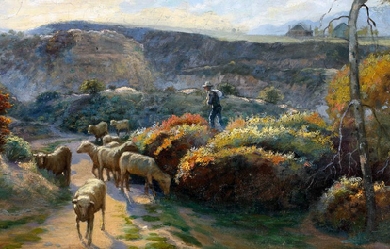
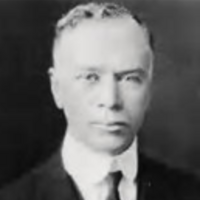
Arthur Chapman (June 25, 1873– December 4, 1935) was an early twentieth-century American poet and newspaper columnist. He wrote a subgenre of American poetry known as Cowboy Poetry. His most famous poem was Out Where the West Begins. Out Where the West Begins Circa 1910, after reading in an Associated Press report of a conference of the governors of the western states at which the geographic beginning of the U.S. West was disputed, he hastily composed what was to become his most famous poem, “Out Where the West Begins,” celebrating the people and the land of the frontier. The first of its three seven-line stanzas ran "Out where the handclasp’s a little stronger, / Out where the smile dwells a little longer, / That’s where the West begins; / Out where the sun is a little brighter, / Where the snows that fall are a trifle whiter, / Where the bonds of home are a wee bit tighter, / That’s where the West begins." The poem was an immediate sensation, widely quoted, often imitated, and more often parodied. (One popular anonymous take-off read, in part, "Where the women boss and the men folk think / That toast is food and tea is a drink; / Where the men use powder and the wrist watch ticks, / And everyone else but themselves are hicks / That’s where the East begins.") According to the dust jacket of Chapman’s 1921 novel, Mystery Ranch, "To-day ["Out Where the West Begins"] is perhaps the best-known bit of verse in America. It hangs framed in the office of the Secretary of the Interior at Washington. It has been quoted in Congress, and printed as campaign material for at least two Governors. . . . [Chapman’s poems possess] a rich Western humor such as had not been heard in American poetry since the passing of Bret Harte.” The popularity of “Out Where the West Begins” led Chapman to arrange for its publication in book form, and in 1916 he produced Out Where the West Begins, and Other Small Songs of a Big Country, a modest fifteen-page volume issued by Carson-Harper in Denver. It was an immediate success and Houghton Mifflin of Boston and New York immediately offered to publish a larger collection. Out Where the West Begins, and Other Western Verses, as it was renamed, appeared in 1917 with fifty-eight poems on ninety-two pages. The title poem was widely reprinted on postcards and plaques. It was frequently set to music, first in 1920, and achieved a separate life on the concert stage. Chapman followed the popular volume in 1921 with the equally successful Cactus Center: Poems of an Arizona Town, containing thirty poems and running to 123 pages. The Literary Review wrote of the verse, "In vigor of style, [it] irresistibly suggests a transplanted Kipling" (19 Feb. 1921, p. 12). The Move East In 1919 Chapman moved to New York City, where he lived in a fashionable neighborhood on the east side of Manhattan and took a job as a staff writer for the Sunday edition of the New York Tribune. He held that position until his retirement in 1925, the year after the newspaper became the New York Herald Tribune. After his wife died in 1923 Chapman married Kathleen Caesar, an editor of the Bell Syndicate; no children were born of his second marriage. He wrote fiction and nonfiction throughout his career as a journalist and continued after he retired. His first effort at book-length fiction, Mystery Ranch (1921), combined the genres of western adventure and murder mystery. The Literary Review dismissed it as “melodramatic” and stated that it provided “little for the seeker of literary values” (19 Nov. 1921, p. 190), but the New York Times more charitably credited Chapman, “known heretofore as a poet of the West,” with being “a clever technician in a new field” (13 Nov. 1921). The book had modest commercial success, but Chapman’s second novel, John Crews (1926), an equally stereotypical adventure-romance of frontier life, sold better. Described by the New York Herald Tribune as “a lively and continuously readable yarn,” it was successful enough to have a reprint edition by another publisher in its first year (28 Mar. 1926). In 1924 Chapman capitalized on his reputation as an expert on the U.S. West with the publication of The Story of Colorado, Out Where the West Begins, a richly illustrated history of the state. His final book was an extensively researched and detailed volume, The Pony Express: The Record of a Romantic Adventure in Business (1932), complete with bibliography, index, and maps. Both were well received by the critics and the public. It was, however, for his poetry that Chapman became and remained famous. His western dialect poems and “Out Where the West Begins” continued to be quoted and to appear in anthologies long after his death, and both of his volumes of verse were brought out in new editions by other publishers as late as 2010. References Wikipedia—https://en.wikipedia.org/wiki/Arthur_Chapman_(poet)
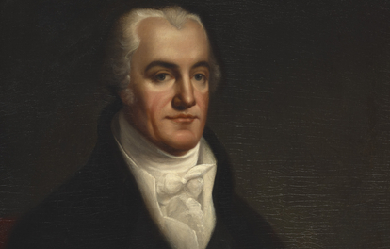
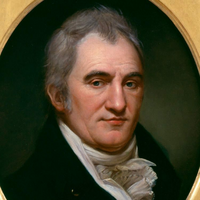
Joel Barlow (March 24, 1754– December 26, 1812) was an American poet, diplomat, and politician. In politics, he supported the French Revolution and was an ardent Jeffersonian. In his own time, Barlow was known especially for the epic Vision of Columbus, though modern readers may be more familiar with The Hasty-Pudding (1793). He also helped draft the Treaty of Tripoli in 1796, which includes the controversial and disputed phrase: “the Government of the United States of America is not, in any sense, founded on the Christian religion”.
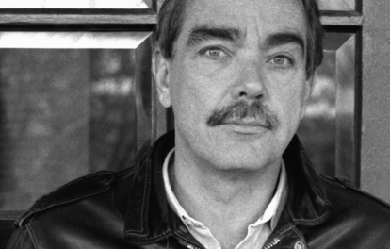
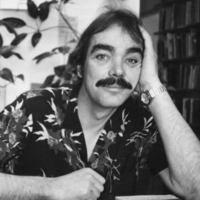
Larry Patrick Levis (September 30, 1946– May 8, 1996) was an American poet. Youth and education Larry Levis was born the son of a grape grower; he grew up driving a tractor, picking grapes, and pruning vines of Selma, California, a small fruit-growing town in the San Joaquin Valley. He later wrote of the farm, the vineyards, and the Mexican migrant workers that he worked alongside. He also remembered hanging out in the local billiards parlor on Selma’s East Front Street, across from the Southern Pacific Railroad tracks. Levis earned a bachelor’s degree from Fresno State College in 1968, a master’s degree from Syracuse University in 1970, and a Ph.D. from the University of Iowa in 1974. Awards and recognition Levis won the United States Award from the International Poetry Forum for his first book of poems, Wrecking Crew (1972), which included publication by the University of Pittsburgh Press. The Academy of American Poets named his second book, The Afterlife (1976) as Lamont Poetry Selection. His book The Dollmaker’s Ghost was a winner of the Open Competition of the National Poetry Series. Other awards included a YM-YWHA Discovery award, three fellowships in poetry from the National Endowment for the Arts, a Fulbright Fellowship, and a 1982 Guggenheim Fellowship. His poems are featured in American Alphabets: 25 Contemporary Poets (2006) and in many other anthologies. Larry Levis died of a heart attack in Richmond, Virginia on May 8, 1996, at the age of 49. Academic career Levis taught English at the University of Missouri from 1974–1980. From 1980 to 1992, he taught at the creative writing program at the University of Utah. He was co-editor of Missouri Review, from 1977 to 1980. He also taught at the Warren Wilson College MFA Program for Writers. From 1992 until his death from a heart attack in 1996 he was a professor of English at Virginia Commonwealth University, which annually awards the Levis Reading Prize in his remembrance (articles about Levis and the prize are featured each year in Blackbird, an online journal of literature and the arts). Selected bibliography * Poetry * Wrecking Crew (1972) * The Afterlife (1977) * The Dollmaker’s Ghost (1981) * Winter Stars (1985) * The Widening Spell of the Leaves (1991) * Elegy (1997) * The Selected Levis (2000) * Prose * The Gazer Within (2000) * Fiction * Black Freckles (1992) References Wikipedia—https://en.wikipedia.org/wiki/Larry_Levis
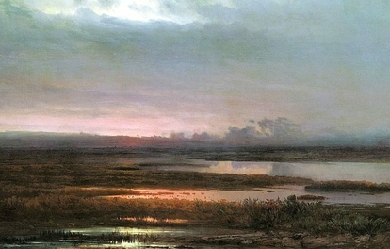
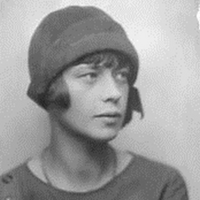
Léonie Fuller Adams (9 December 1899– 27 June 1988) was an American poet. She was appointed the seventh Poet Laureate Consultant in Poetry to the Library of Congress in 1948. Biography Adams was born in Brooklyn, New York, and raised in an unusually strict environment. She was not allowed on the subway until she was eighteen, and even then her father accompanied her. She studied at Barnard College where she was a contemporary and friend of roommate Margaret Mead. While still an undergraduate, she showed remarkable skill as a poet, and at this time her poems began to be published. In 1924, she became the editor of The Measure. Her first volume of poetry, titled Those Not Elect, was in 1925. In the spring of 1928, she had a brief affair with Edmund Wilson. Léonie apologized to Wilson for having “moped and quarreled” on the day she left for France. While in London, Leonie met H.D., who introduced her to several figures in the London literary scene; in Paris she was invited to tea by Gertrude Stein. At the beginning of 1929, when Wilson wrote to her that he was thinking of marrying another woman, Leonie wrote back that she had had a pregnancy and hinted that she had had a miscarriage, mentioning the need for a visit to a London doctor in October. Guilt over the pregnancy—both Wilson, and a former student, Judith Farr, reported that Léonie had a gift for making others feel guilty—combined with his heavy drinking, and indecision in other elements of his personal life led Wilson to a nervous collapse. Louise Bogan later revealed to him that Léonie’s pregnancy had been imaginary, and this caused a temporary rift between Bogan and Adams. In 1929 appeared her volume High Falcon. During the 1930s, she lived in the Ramapo Mountains near Hillburn, New York, and commuted to New York City to lecture on Victorian poetry at New York University. In 1930, she met writer and fellow New York University teacher William Troy. The two married in 1933. That same year she published This Measure. In 1935 she and her husband joined the faculty of Bennington College. She taught English at various other colleges and universities including Douglass College (then known as the New Jersey College for Women), the University of Washington, the Bread Loaf Writers’ Conference, Columbia University, and Sarah Lawrence College. The poets for whom Adams acted as a mentor included Louise Glück. Fantasy writer, poet and editor Lin Carter attended her Poetry Workshop while studying at Columbia University. Marcella Comès Winslow painted a portrait of Adams in 1947. In 1950, she received an honorary doctorate from the New Jersey College for Women. Adams’ Poems: A Selection won the 1954 Bollingen Prize. In a review of the book, Louise Bogan wrote: “Poems such as ”Companions of the Morass," “For Harvest,” “Grapes Making,” and “The Runner with the Lots” spring from and are indications of a poetic endowment as deep as it is rare.” In 1955, in a brief autobiography written for a biographical dictionary of modern literature, Adams threw a little light on her religious and political views: “My father... made me a childhood agnostic—I am now a Roman Catholic.... I am a very liberal democrat.” In 1988, she died at the age of 88 in New Milford, Connecticut. Poetic style Superficially, Léonie Adams’ style did not change greatly over her lifetime, but there was an initial shy wonder at the world that eventually became an intense and almost devotional lyricism. Her rich descriptions demonstrate great delicacy of perception and an exalted spirit. She bears comparison with Henry Vaughan and 17th century metaphysical poetry, especially in her near-religious ecstasy. In a recent critical commentary for the WOM-PO (Discussion of Women’s Poetry) website, poet Annie Finch provides a more postmodern reading of Adams as “a lush, sensual poet who directed her sensuality not towards other people but primarily towards the materials of poetry, towards syntax and symbol, diction and word-sound, in short, towards the language itself,” and goes on to say that “Adams’ poetry teases the balance between the incantatory and representational powers of poetic language. She uses the sounds of language as counterweights to her poems’ ostensible meanings, complicating the act of reading and calling into question a reader’s emotional responses.” Prizes and awards 1954: the Bollingen Prize for Poems: A Selection (1954) 1974: Academy Fellowship from the Academy of American Poets the Shelley Memorial Award fellowship from The Guggenheim Foundation grants from The National Council of the Arts and The National Institute of Arts and Letters, Poetry collections Those Not Elect, Robert M. McBride & Co, 1925; Reprint Services Corp, 1992, ISBN 978-0-7812-6913-1 High Falcon and Other Poems, John Day, New York, 1929. Midsummer, Ward Ritchie, 1929 This Measure, A. A. Knopf, 1933 Poems: A selection, Funk & Wagnalls, 1954 Edited and translated The Lyrics of Francois Villon, Limited Editions Club, New York, 1933. Children’s books “A casque for Amadis,” The Metropolitan Museum of Art, 1928. “The tale of Tenjin: or how a much-abused man became a saint,” The Metropolitan Museum of Art, 1928. Anthologies David Lehman, ed. (2006). “Magnificat in Little; The Horn; The Figurehead; Bell Tower”. The Oxford book of American poetry. Oxford University Press. ISBN 978-0-19-516251-6. David Cecil, Allen Tate, ed. (1958). “Country Summer; Caryatid; Early Waking; These Not Elect; Grapes Making”. Modern Verse in English. Taylor & Francis.
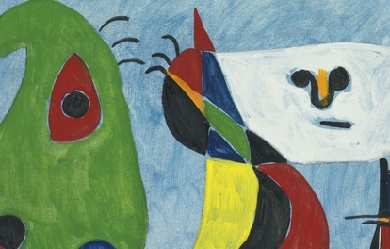
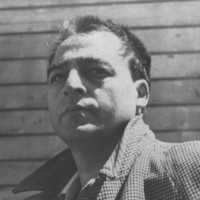
Kenneth Patchen (December 13, 1911– January 8, 1972) was an American poet and novelist. He experimented with different forms of writing and incorporated painting, drawing, and jazz music into his works, which were often compared with those of William Blake and Walt Whitman. Patchen’s biographer wrote that he “developed in his fabulous fables, love poems, and picture poems a deep yet modern mythology that conveys a sense of compassionate wonder amidst the world’s violence.” Along with his friend and peer Kenneth Rexroth, he was a central influence over the San Francisco Renaissance and the Beat Generation. Life Early years Patchen was born in Niles, Ohio. His father Wayne made his living in the nearby steel mills of Youngstown which Patchen would reference in his poems “The Orange Bears” and "May I Ask You A Question, Mr. Youngstown Sheet & Tube?" Patchen kept a diary from the age of twelve and read Dante, Homer, Burns, Shakespeare and Melville. I remember you would put daisies On the windowsill at night and in The morning they'd be so covered with soot You couldn't tell what they were anymore. — from "The Orange Bears", Red Wine and Yellow Hair (1949) His family included his mother Eva, his sisters Ruth, Magel, Eunice, and Kathleen, and his brother Hugh. In 1926, while Patchen was still a teenager, his younger sister Kathleen was struck and killed by an automobile. Her death deeply affected him and he would later pay tribute to her in his 1948 poem “In Memory of Kathleen.” Patchen first began to develop his interest in literature and poetry while he was in high school, and the New York Times published his first poem while he was still in college. He attended Alexander Meiklejohn’s Experimental College (which was part of the University of Wisconsin), in Madison, Wisconsin, for one year, starting in 1929. Patchen had a football scholarship there but had to drop out when he injured his back. After leaving school, Patchen travelled across the country, taking itinerant jobs in such places as Arkansas, Louisiana and Georgia. Marriage Next, Patchen moved to the East Coast, living in New York City and Boston. While in Boston, in 1933, he met Miriam (néeOikemus) at a friend’s Christmas party. At the time, Miriam was a college freshman at Massachusetts State College in Amherst. The two kept in touch and Patchen started sending her the first of many love poems. They soon fell in love and decided to get married. First Patchen took her to meet his parents in Youngstown, then they got married on June 28, 1934, in nearby Sharon, Pennsylvania. During the 1930s the couple moved frequently between New York City’s Greenwich Village and California, as Patchen struggled to make a living as a writer. Despite his constant struggle, his strong relationship with Miriam supported him and would continue to support him through the hardships that plagued him for most of his adult life. The couple moved to a cottage in Old Lyme, Connecticut in 1947. Then in 1951, a few years after befriending the West Coast poet Kenneth Rexroth, the Patchens moved to the West Coast, living first in San Francisco, and then moving to Palo Alto in 1957. Health problems In 1937, while trying to fix a friend’s car, Patchen suffered a permanent spinal injury which was to give him extreme pain, to varying degrees, for the rest of his life and which required multiple surgical procedures. In a letter to a friend from 1960, Patchen explained, "In 1956 a spinal fusion [operation] (second of two operations) gave me relief and mobility (& for the first time I was able to go about giving readings, and so on.” By this point, he and his wife had moved from San Francisco to Palo Alto to be closer to the Palo Alto Clinic where both Miriam and Kenneth were receiving treatment. Then, in 1959, Patchen notes in the letter quoted above, that another surgery at the Presbyterian Medical Center of San Francisco ended in disaster. He writes, "During [a] surgical procedure for my throat, and while under complete anesthesia, I suffered another slipped disc." Though he was heavily sedated during the procedure, Patchen suspected that he had been dropped at some point during the procedure (though he couldn’t prove it). Tragically, the mishap left Patchen in considerably more pain and disabled for the rest of his life. In 1963, he sued his surgeon for medical malpractice and lost. Politics Throughout his life-time Patchen was a fervent pacifist, as he made clear in much of his work. He was strongly opposed to United States involvement in World War II. In his own words: “I speak for a generation born in one war and doomed to die in another.” This controversial view, coupled with his physical immobilization, may have prevented wider recognition or success beyond what some consider a “cult” following. Final years Patchen lived out the final years of his life with his wife in their modest home in Palo Alto where Patchen created many of his distinctive painted poems, produced while confined to his bed after his disastrous 1959 surgery inadvertently damaged his spine. He died in Palo Alto on January 8, 1972. His wife, Miriam, died 28 years later, in March 2000, also in Palo Alto. Career Writing Patchen’s first book of poetry, Before the Brave, was published by Random House in 1936. His earliest collections of poetry were his most political and led to his being championed, in the 1930s, as a “Proletariat Poet”. This description, which Patchen rejected, never stuck since his work varied widely in subject, style and form. As his career progressed, Patchen continued to push himself into more and more experimental styles and forms, developing, along with writers such as Langston Hughes and Kenneth Rexroth, what came to be known as jazz poetry. He also experimented with his childlike “painted poems,” many of which were to be published posthumously in the 1984 collection What Shall We Do Without Us. After the appearance of his first book, he and Miriam traveled to the Southwest, moving on to Hollywood in 1938 where he tried, unsuccessfully, writing film scripts and worked for the WPA. His next book of poems First Will and Testament drew the attention of James Laughlin, then launching New Directions Publishing as a student at Harvard. Laughlin’s decision to publish Patchen’s work started a relationship that would last for the remainder of both men’s careers. For a short time, in 1939, Patchen even took an office job working for New Directions. In addition to their professional relationship, Patchen and Laughlin also became good friends. Patchen pioneered “the drawing-and-poem form” as well as the painting-and-poem form and produced over a thousand “painted books”, special copies of his own works with original paintings on the covers. His many hundreds of drawings and paintings have been described as being reminiscent of Blake and Klee. During the course of a long and varied career, he also tried his hand at writing experimental novels such as The Journal of Albion Moonlight and The Memoirs of A Shy Pornographer, as well as the radio play The City Wears A Slouch Hat. Patchen’s Collected Poems was first published in 1969, just a few years prior to his death. Peers One of Patchen’s biggest literary supporters was the novelist Henry Miller who wrote a long essay on Patchen, entitled Patchen: Man of Anger and Light in 1946. In this essay, Miller wrote, “Patchen’s pacifism is closely tied to what he sees as the loss of innocence in society, the corrupted human spirit, and is often expressed with animals. Such is the case with the forbidding ‘The Lions of Fire Shall Have Their Hunting.’” Patchen also had a close, lifelong friendship with the poet E.E. Cummings that began when they were both living in Greenwich Village in the 1940s. Patchen was also close peers with the West Coast poet Kenneth Rexroth who shared Patchen’s anti-war radicalism as well as his interest in combining poetry readings with jazz accompaniment. The two poets began to correspond in the late 40s and in the 1950s. Rexroth encouraged the Patchens to move to San Francisco in the early 1950s. For a record of his correspondence with fellow writers and artists, see Allen Frost’s Selected Correspondence of Kenneth Patchen from Bottom Dog Press. Influence Later, in the 1950s, Patchen became a major influence on the younger beat poets including Allen Ginsberg and Lawrence Ferlinghetti. Miriam Patchen recalled some of these young poets, including Philip Lamantia, Gary Snyder, and Michael McClure, making special visits to the Patchens’ home in San Francisco to pay their respects. However, once the Beats’ popularity grew, Patchen disliked being associated with them and was highly critical of their glorification of drug use and what he perceived to be a strong desire for media attention and fame. Patchen referred to “Ginsberg and Co.” and the media hype surrounding them as a “freak show.” Awards * = * In 1936, soon after the release of his first book, Patchen was awarded a Guggenheim Fellowship. In 1944, he won the Ohioana Award for his book Cloth of the Tempest. He received the Shelley Memorial Award in 1954, and in 1967, he received a $10,000 grant for his contribution to American literature from the National Foundation on the Arts and Humanities. Musical collaborations and recordings * In 1942 Patchen collaborated with the composer John Cage on the radio play The City Wears A Slouch Hat. In the 1950s Patchen collaborated with jazz bassist and composer Charles Mingus, reading his poetry with Mingus’ group, although no known recordings of the collaboration exist. * In the late 1950s Moe Asch of Folkways Records recorded Patchen reading his poetry and excerpts from one of his novels. These recordings were released as Kenneth Patchen Reads with Jazz in Canada (1959), Selected Poems of Kenneth Patchen (1960), Kenneth Patchen Reads His Love Poems (1961), and The Journal of Albion Moonlight (1972). Kenneth Patchen Reads with Jazz in Canada (1959) was recorded in Vancouver the same week as a live performance for CBC Radio. The original record included a mimeographed pamphlet featuring poems and credits for the jazz group who played on the record, the Allan Neil Quartet. It was subsequently re-released on CD by the Locust Music label in 2004. * In 1964–65, the English composer David Bedford set an extract from Patchen’s 1948 poem “In Memory of Kathleen” to classical music for the piece A Dream of the Lost Seven Stars. * In November 2004 the Peter Brötzmann Chicago Tentet presented A Homage to Kenneth Patchen at the Chicago Humanities Festival with Mike Pearson reading from The Collected Poems of Kenneth Patchen. A recording was released on the German jazzwerkstatt label entitled Be Music, Night in 2006. Musicians in the performance included Peter Brötzmann– clarinets, alto and tenor saxes; Mats Gustafsson– baritone sax and bass clarinet; Ken Vandermark– baritone sax and clarinet; Joe McPhee– trumpet and alto sax; Jeb Bishop– trombone; Fred Lonberg-Holm– cello; Kent Kessler– bass; Paal Nilssen-Love and Michael Zerang– drums. In 1984 Brötzmann had recorded a solo dedication to Patchen for FMP titled 14 Love Poems, a collection of short unaccompanied reed pieces that mirror textures and cadences found in the poet’s own love poems. * On January 21, 2008, El Records released the record Rebel Poets in America, which included poetry readings with jazz accompaniment by both Patchen and Lawrence Ferlinghetti, including such Patchen classics as “The Murder of Two Men by a Young Kid Wearing Lemon Colored Gloves” and “I Went To The City.” Patchen made these recordings in collaboration with the musician Allyn Ferguson who composed and arranged jazz accompaniment for each individual poem and also led the jazz ensemble. * In October 2011 The Claudia Quintet, with guest vocalists Kurt Elling and Theo Bleckmann, released an album on Cuneiform Records of Patchen’s poetry set to music written by Claudia leader John Hollenbeck. Critical response * Patchen’s work has received little attention from academic critics. However, a few scholars have published critical books on Patchen, including Raymond Nelson, Herbert P. Hogue, and Larry R. Smith. Also, a collection of essays on Patchen’s work was edited by Richard Morgan for the book Kenneth Patchen: A Collection of Essays (1977). * One can also find notable book reviews that provide a reasonably accurate gauge of the public response to Patchen’s work when it was initially published. For instance, Patchen biographer Larry Smith notes that "[the] initial reception to Patchen’s First Will & Testament was positive and strong." Smith notes that a reviewer from The New Republic compared the book to T. S. Eliot’s The Waste Land. The book was also praised in reviews by Louis Untermeyer and John Peale Bishop. However, the book did receive a notably negative review by Delmore Schwartz in Partisan Review. Following this first negative review, Schwartz would remain one of Patchen’s fiercest critics. * In response to Patchen’s novel The Journal of Albion Moonlight (1941), prior to its publication, Henry Miller praised the work in the long essay Patchen: Man of Anger and Light which was published in book form in 1946. Also prior to the book’s publication, Delmore Schwartz read the manuscript and claimed to be so offended by the controversial anti-war stance in the book that he persuaded Patchen’s publisher, New Directions, against publishing it. This forced Patchen to self-publish the book by subscription. Post-publication, the book’s supporters included Miller, Robert Duncan, and James Laughlin; its detractors included Schwartz, Edmund Wilson, and Anaïs Nin. Despite receiving a favorable review from William Carlos Williams in 1942, the novel’s highly experimental style, limited release, and anti-war stance would guarantee it a very limited audience. * In 1943, Patchen’s Cloth of the Tempest received largely negative reviews. One reviewer even accused Patchen of being “naive,” a common criticism aimed at his work, particularly regarding his fervent, pacifistic beliefs. * In the 1950s, Patchen received praise from the jazz critic Ralph Gleason for his jazz-poetry readings with the Chamber Jazz Sextet at the Blackhawk Club in San Francisco. Gleason wrote, "I think [Patchen’s reading] technique presents the possibilities of an entire new medium of expression―a combination of jazz and poetry that would take nothing away from either form but would create something entirely new." When Patchen recorded his jazz-poetry readings, one of the resulting albums drew praise from the poet John Ciardi who wrote that “Patchen’s poetry is in many ways a natural for jazz accompaniment. Its subject and its tone are close to those of jazz.” * In 1958, Patchen’s Selected Poems and his book When We Were Here Together received significant praise from the reviewer Frederick Eckman in Poetry. Eckman favorably compared Patchen’s work to that of the poet William Blake and singled out the poems “Street Corner College,” “Do the Dead Know What Time It Is?,” “The Origin of Baseball,” “Fog,” and “The Character of Love Seen As A Search for the Lost” as some of Patchen’s best pieces. He also called When We Were Here Together “a beautiful book, inside and out.” However, in the very same issue of Poetry, the reviewer Robert Beum wrote a brief, negative review of Patchen’s book Hurrah for Anything, calling the book dull and clichéd. * Patchen’s most important volume, The Collected Poems of Kenneth Patchen, first published in 1968 received largely positive reviews. One reviewer from The New York Times called the book “a remarkable volume” and compared Patchen’s work to Walt Whitman, Hart Crane, D. H. Lawrence, and even to the Bible. And in another review, the poet David Meltzer called Patchen “one of America’s great poet-prophets” and called his body of work “visionary art for our time and for Eternity.” Like the Times review, Meltzer also compared Patchen’s work to Walt Whitman and the Bible in addition to William Blake. Legacy * Although he did not achieve widespread fame during his lifetime, a small but dedicated following of fans and scholars continue to celebrate Patchen’s art. The University of California, Santa Cruz, hosts an archive of Patchen’s work entitled “Patchenobilia,” and many bookstores around the San Francisco Bay Area, Patchen’s final home, continue to host jazz and poetry events which include his works. * Between 1987 and 1991 there were Kenneth Patchen Festivals, celebrating his work, in Warren, Ohio, which encompasses the town of Niles where Patchen was born and grew up. These festivals were sponsored by the Trumbull Art Gallery in collaboration with the University of California, Santa Cruz. In honor of Patchen, the town of Niles also renamed the little street where he was born to “Patchen Avenue.” * In 2011, Kelly’s Cove Press published Kenneth Patchen: A Centennial Selection, edited by Patchen’s friend Jonathan Clark, in celebration of the centenary of Patchen’s birth. * In April 2012, Allen Frost published the Selected Correspondence of Kenneth Patchen, which included 336 pages of letters between Patchen and James Laughlin, Lawrence Ferlinghetti, Henry Miller, Amos Wilder, Dylan Thomas, Thomas Wolfe and E.E. Cummings. * In 2014 Jonathan Clark released a full color collection of Kenneth Patchen photos and art in An Astonished Eye: The Art of Kenneth Patchen, from Artichoke Press and the University of Rochester Library. Bibliography * * Before the Brave, (Random House) 1936 * First Will and Testament (Norfolk, CT: New Directions) 1939 (800 copies) * The Journal of Albion Moonlight, (Self-published) 1941, (New Directions) 1961 * The Dark Kingdom, (New York: Harriss & Givens) 1942 * The Teeth Of The Lion, (New Directions) 1942 * Cloth of the Tempest, (Harper and Brothers) 1943 * The Memoirs of a Shy Pornographer, (New Directions) 1945 * An Astonished Eye Looks Out of the Air, (Untide Press) 1945 * Outlaw of the Lowest Planet, (London: Grey Walls Press) 1946 * The Selected Poems of Kenneth Patchen, (New Directions) 1946 * Sleepers Awake, (New York: Padell Book Co) 1946 * Panels for the Walls of Heaven, (Berkeley, CA: Bern Porter/Gillick Press) 1946 * Pictures of Life and Death, (New York: Padell Book Co) 1946 * They Keep Riding Down All the Time, (New York: Padell Book Co) 1946 * CCCLXXIV Poems, (New York: Padell Book Co) 1948 * Red Wine and Yellow Hair, (New Directions) 1949 * Fables and Other Little Tales, (Karlsruhe Baden: Jonathan Williams) 1953 * Poems of Humor and Protest, (San Francisco: City Lights Books) 1954 * The Famous Boating Party, (New Directions) 1954 * Hurrah for Anything, (New Directions) 1957 * When We Were Here Together, (New Directions) 1957 * Selected Poems, (New Directions) 1957 * The Love Poems of Kenneth Patchen, (San Francisco: City Lights Books) 1960 * Because It Is, (New Directions) 1960 * Hallelujah Anyway, (New Directions) 1966 * But Even So (picture poems), (New Directions) 1968 * Selected Poems (London: Jonathan Cape), 1968 * Collected Poems, (New Directions) 1969 * Aflame and Afun of Walking Faces, (New Directions) 1970 * Wonderings, (New Directions) 1971 * In Quest of Candlelighters, (New Directions) 1972 * Nothing has changed (Artichoke Press) 1975 * The Argument of Innocence, (Oakland CA: Scrimshaw Press) 1976 * Patchen’s Lost Plays, (Santa Barbara, CA: Capra Press) 1977 * Still Another Pelican in the Breadbox, (Youngstown, OH: Pig Iron Press) 1980 * What Shall We Do Without Us, (picture poems) (San Francisco, CA: Sierra Club Books 1984 * Awash with Roses: Collected Love Poems of Kenneth Patchen, (Huron, OH: Bottom Dog Press) 1999. ISBN 978-0-933087-21-7 * We Meet, (New Directions) 2008. 978-0-811217-58-3 * The Walking-Away World, (New Directions) 2008. ISBN 0-8112-1757-4 * Kenneth Patchen: A Centennial Selection, Jonathan Clark (ed) (Kelly’s Cove Press) 2011. ISBN 978-1-61364-453-9 * Selected Correspondence of Kenneth Patchen, Allen Frost (ed) (Huron, OH: Bottom Dog Press), 2012. ISBN 978-1-933964-54-6 Discography * * Selected Poems of Kenneth Patchen: Read by the Author, 1959, Folkways Records, FW09717 (cover artwork by Jackson Pollock) * Kenneth Patchen Reads with Jazz in Canada– with the Alan Neil Quartet, 1959, Folkways Records, FW09718 * Kenneth Patchen Reads His Love Poems, 1961, Folkways Records, FW09719 * The Journal of Albion Moonlight, 1972, Folkways Records, FW09716 * Rebel Poets of America, 2008, (with Lawrence Ferlinghetti) El Records/Cherry Red Records (recorded 1957) References Wikipedia—https://en.wikipedia.org/wiki/Kenneth_Patchen
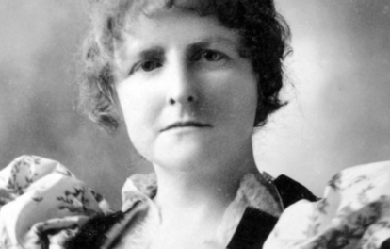
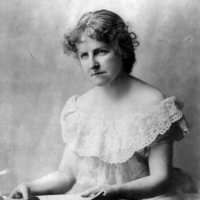
Mary Eleanor Wilkins Freeman (October 31, 1852 – March 13, 1930) was a prominent 19th-century American author. Biography Freeman was born in Randolph, Massachusetts on October 31, 1852, to Eleanor Lothrop and Warren Edward Wilkins, who originally baptized her “Mary Ella”. Freeman’s parents were orthodox Congregationalists, bestowing a very strict childhood. Religious constraints play a key role in some of her works. In 1867, the family moved to Brattleboro, Vermont, where Freeman graduated from the local high school before attending, Mount Holyoke College (then, Mount Holyoke Female Seminary) in South Hadley, Massachusetts, for one year, from 1870–71. She later finished her education at Glenwood Seminary in West Brattleboro. When the family’s dry goods business in Vermont failed in 1873, the family returned to Randolph, Massachusetts. Freeman’s mother died three years later, and she changed her middle name to “Eleanor” in her memory. Freeman’s father died suddenly in 1883, leaving her without any immediate family and an estate worth only $973. She moved in with a friend, Mary J. Wales (February 26, 1847 – December 24, 1900), and began writing as her only source of income. During a visit to Metuchen, New Jersey in 1892, she met Dr. Charles Manning Freeman, a non-practicing medical doctor seven years younger than she. After years of courtship and delays, the two were married on January 1, 1902. Immediately after, she firmly established her name as “Mary E. Wilkins Freeman”, which she asked Harper’s to use on all of her work. The couple built a home in Metuchen, where Freeman became a local celebrity for her writing, despite having occasionally published satirical fictional representations of her neighbors. Her husband suffered from alcoholism and an addiction to sleeping powders. He also had a reputation for driving fast horses, and womanizing. He was committed to the New Jersey State Hospital for the Insane in Trenton, and the two legally separated a year later. After his death in 1923, he left the majority of his wealth to his chauffeur and only one dollar to his former wife. In April 1926, Freeman became the first recipient of the William Dean Howells Medal for Distinction in Fiction from the American Academy of Arts and Letters. Freeman suffered a heart attack and died in Metuchen on March 15, 1930, aged 77. She was interred in Hillside Cemetery in Scotch Plains, New Jersey. Writing Freeman began writing stories and verse for children while still a teenager to help support her family and was quickly successful. Her career as a short story writer launched in 1881 when she took first place in a short story contest with her submission “The Ghost Family.” When the supernatural caught her interest, the result was a group of short stories which combined domestic realism with supernaturalism and these have proved very influential. Her best known work was written in the 1880s and 1890s while she lived in Randolph. She produced more than two dozen volumes of published short stories and novels. She is best known for two collections of stories, A Humble Romance and Other Stories (1887) and A New England Nun and Other Stories (1891). Her stories deal mostly with New England life and are among the best of their kind. Freeman is also remembered for her novel Pembroke (1894), and she contributed a notable chapter to the collaborative novel entitled The Whole Family (1908). Through her different genres of work including children’s stories, poems, and short stories, Mary Wilkins Freeman sought to demonstrate her values as a feminist. During the time which she was writing, she did this in nonconventional ways; for example, she diverged from making her female characters weak and in need of help which was a common trope in literature. Through characters such as Louisa in her short story: “A New England Nun,” Freeman challenges contemporary ideas concerning female roles, values, and relationships in society. Also, Freeman’s short story “The Revolt of Mother illustrated the struggles of rural women and the role they played within their families. “The Revolt of Mother” initiated the discussion on the rights of rural woman, went on to inspire many more pieces discussing the lack of control rural woman had over families finances, and looking to improve the structure of farm families in the early twentieth-century. The one-act opera The Village Singer by Stephen Paulus was adapted from a Freeman short story; it was commissioned by Opera Theater of Saint Louis, and was premiered in 1979.
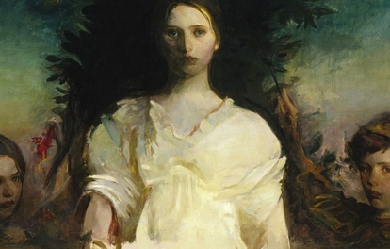
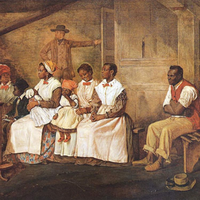
Lizelia Augusta Jenkins Moorer (September 1868 - May 24, 1936) was a poet and teacher in Orangeburg, South Carolina. She taught at the Normal and Grammar Schools, Claflin University, Orangeburg, South Carolina from 1895 to 1899. In 1907, she published a collection of poems, “Prejudice Unveiled and Other Poems”. Her work was called, by Joan R. Sherman, the “best poems on racial issues written by any black woman until the middle of the century”. Moorer attacks “lynching, debt peonage, white rape, Jim Crow segregation, and the hypocrisy of the church and the white press”. Moorer was born in September 1868 to Warren D. Jenkins and Mattie Miller in Pickens, South Carolina. In 1899, she married Jacob Moorer, an attorney in Orangeburg who frequently saw cases defending the rights of blacks against what he saw as a prejudiced legal system in South Carolina. In particular, he fought against the constitutionality of election law in the 1895 South Carolina Constitution. Lizelia was also a very strong activist. Beyond her poetry, she was active in the Woman’s Christian Temperance Union, serving as State Vice-President in South Carolina in 1910. In 1924, she attended the 1924 Methodist Episcopal Church General Conference where she gave a speech arguing that women should be allowed to be ordained within the Methodist Church. During that conference, women were, indeed, given the right to be ordained as local deacons and elders.
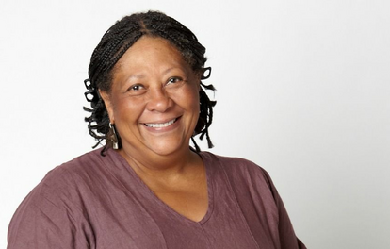
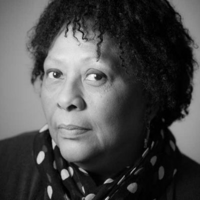
Marilyn Nelson (born April 26, 1946) is an American poet, translator, and children’s book author. She is a professor emeritus at the University of Connecticut, the former poet laureate of Connecticut, and the 2017 winner of the NSK Neustadt Prize for Children’s Literature. From 1978 to 1994 she published under the name Marilyn Nelson Waniek. She is the author or translator of over twenty books and five chapbooks of poetry for adults and children. While most of her work deals with historical subjects, in 2014 she published a memoir, named one of NPR’s Best Books of 2014, entitled How I Discovered Poetry. Early life Nelson was born on April 26, 1946 in Cleveland, Ohio, to Melvin M. Nelson, a U.S. serviceman in the Air Force, and Johnnie Mitchell Nelson, a teacher. She grew up on military bases, and began writing while in elementary school. She earned a B.A. from the University of California-Davis, an M.A. from the University of Pennsylvania in 1970, and a Ph.D. from the University of Minnesota in 1979. Career She is a professor emeritus of English at the University of Connecticut and the founder and director of Soul Mountain Retreat. She was poet laureate of the State of Connecticut from 2001 to 2006.Her poetry collections include The Homeplace (Louisiana State University Press), which won the 1992 Anisfield-Wolf Award and was a finalist for the 1991 National Book Award; and The Fields Of Praise: New And Selected Poems (Louisiana State University Press), which won the Poets’ Prize in 1999 and was a finalist for the 1997 National Book Award. Her honors include two NEA creative writing fellowships, the 1990 Connecticut Arts Award, a Fulbright Teaching Fellowship, and a 2001 Guggenheim Fellowship. In 2011, she spent a semester as a Brown Foundation Fellow at the University of the South in Sewanee, Tennessee. In 2012, the Poetry Society of America awarded her the Frost Medal. In 2013, Nelson was elected a chancellor of the Academy of American Poets. Published works Poetry booksSweethearts of Rhythm: The Story Of The Greatest All-Girl Swing Band In The World (Dial Books, 2009, Illustrator Jerry Pinkney, ISBN 9780803731875) The Freedom Business: Including A Narrative of the Life and Adventures of Venture, a Native of Africa (Front Street, 2008, ISBN 978-1-932425-57-4) A Wreath for Emmett Till (Houghton Mifflin, 2005, Illustrator Philippe Lardy, ISBN 978-0-618-39752-5) The Cachoeira Tales, and Other Poems (Louisiana State University Press, 2005, ISBN 978-0-8071-3064-3) Fortune’s Bones: The Manumission Requiem (Front Street, 2004, notes and annotations by Pamela Espeland) Carver, a Life in Poems (Front Street, 2001, ISBN 978-1-886910-53-9) The Fields of Praise: New and Selected Poems (Louisiana State University Press, 1997, ISBN 978-0-8071-2175-7) Magnificat (Louisiana State University Press, 1994, ISBN 978-0-8071-1921-1) The Homeplace (Louisiana State University Press, 1990, ISBN 978-0-8071-1641-8) Mama’s Promises (Louisiana State University Press, 1985, ISBN 978-0-8071-1250-2) For the Body (Louisiana State University Press, 1978, ISBN 978-0-8071-0464-4)ChapbooksShe-Devil Circus (Aralia Press, 2001) Triolets for Triolet (Curbstone Press, 2001) Partial Truth (The Kutenai Press, 1992) The Freedom Business: Connecticut Landscapes Through the Eyes of Venture Smith (Lyme Historical Society, Florence Griswold Museum, 2006, illustrated by American paintings from the Florence Griswold Museum)Collaborative booksMiss Crandall’s School for Young Ladies and Little Misses of Color (Wordsong, 2007, with Elizabeth Alexander, illustrated by Floyd Cooper, ISBN 978-1-59078-456-3) Pemba’s Song: A Ghost Story (Scholastic Press, 2008, with Tonya Hegamin) The Cat Walked Through the Casserole (Carolrhoda Books, 1984, with Pamela Espeland, various illustrators)TranslationsThe Ladder by Halfdan Rasmussen (translated from Danish, Candlewick, 2006, illustrated by Pierre Pratt) The Thirteenth Month by Inge Pedersen (translated from Danish, Oberlin College Press, 2005) Hecuba by Euripides, in Euripides I, Penn Greek Drama Series (translated from earlier English translations, University of Pennsylvania Press, 1998) Hundreds of Hens and Other Poems for Children by Halfdan Rasmussen (translated from Danish, Black Willow Press, 1982, with Pamela Espeland, illustrations by D.M. Robinson)Books for young childrenSnook Alone (Candlewick Press, 2010, illustrated by Timothy Basil Ering, ISBN 978-0-7636-2667-9) Beautiful Ballerina (Scholastic Press, 2009, photographs by Susan Kuklin, ISBN 978-0-545-08920-3) The Cat Walked Through the Casserole (Carolrhoda Books, 1984)In AnthologyGhost Fishing: An Eco-Justice Poetry Anthology (University of Georgia Press, 2018) Honors and awards Kent fellowship, 1976; National Endowment for the Arts fellowships, 1981, 1990; Connecticut Arts Award, 1990; National Book Award finalist for poetry, 1991; Annisfield-Wolf Award, 1992; Fulbright teaching fellowship, 1995; National Book Award finalist for poetry, 1997; Poets’ Prize, 1999, for The Fields of Praise: New and Selected Poems; Contemplative Practices fellowship, American Council of Learned Societies, 2000; named Poet Laureate for the State of Connecticut, Connecticut Commission on the Arts, 2001; J.S. Guggenheim Memorial Foundation fellowship, 2001; Boston Globe/Horn Book Award and National Book Award finalist in young-people’s literature category, both 2001, and Coretta Scott King Honor Book designation, Flora Stieglitz Straus Award for Nonfiction, and Newbery Honor designation, all 2002, all for Carver: A Life in Poems; Coretta Scott King Book Award, 2005, for Fortune’s Bones: The Manumission Requiem; two Pushcart prizes; Michael L. Printz Award honor book designation, Lee Bennett Hopkins Poetry Award honor book designation, and Coretta Scott King Honor Award, all 2006, all for A Wreath for Emmett Till; Lifetime Achievement honor, Connecticut Book Awards, 2006, NSK Neustadt Prize for Children’s Literature, 2017.
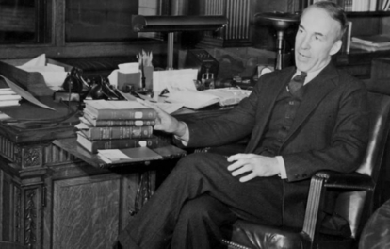
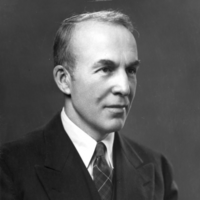
Archibald MacLeish (May 7, 1892– April 20, 1982) was an American poet, writer, and the Librarian of Congress. He is associated with the Modernist school of poetry. He received three Pulitzer Prizes for his work. MacLeish was born in Glencoe, Illinois. His father, Scottish-born Andrew MacLeish, worked as a dry goods merchant. His mother, Martha (née Hillard), was a college professor and had served as president of Rockford College. He grew up on an estate bordering Lake Michigan. He attended the Hotchkiss School from 1907 to 1911 before entering Yale University, where he majored in English, was elected to Phi Beta Kappa, and was selected for the Skull and Bones society. He then enrolled in Harvard Law School, where he served as an editor of the Harvard Law Review. In 1916, he married Ada Hitchcock. His studies were interrupted by World War I, in which he served first as an ambulance driver and later as a captain of artillery. His brother, Kenneth MacLeish was killed in action during the war. He graduated from law school in 1919, taught law for a semester for the government department at Harvard, then worked briefly as an editor for The New Republic. He next spent three years practicing law.


David Ignatow (February 7, 1914– November 17, 1997) was an American poet. Life David Ignatow was born in Brooklyn on February 7, 1914, and spent most of his life in the New York City area. He died on November 17, 1997, at his home in East Hampton, New York. His papers are held at University of California, San Diego. Ignatow began his professional career as a businessman. After committing wholly to poetry, Ignatow worked as an editor of American Poetry Review, Analytic, Beloit Poetry Journal, and Chelsea Magazine, and as poetry editor of The Nation. He taught at the New School for Social Research, the University of Kentucky, the University of Kansas, Vassar College, York College, City University of New York, New York University, and Columbia University. He was president of the Poetry Society of America from 1980 to 1984 and poet-in-residence at the Walt Whitman Birthplace Association in 1987. Awards * Ignatow’s many honors include a Bollingen Prize, two Guggenheim fellowships, the John Steinbeck Award, and a National Institute of Arts and Letters award “for a lifetime of creative effort.” He received the Shelley Memorial Award (1966), the Frost Medal (1992), and the William Carlos Williams Award (1997) of the Poetry Society of America. Bibliography * Living Is What I Wanted: Last Poems (BOA Editions, 1999) * At My Ease: Uncollected Poems of the Fifties and Sixties (1998) * I Have a Name (1996) * The End Game and Other Stories (1996) * Against the Evidence: Selected Poems, 1934-1994 (1994) * Despite the Plainness of the Day: Love Poems (1991) * Shadowing the Ground (1991) * New and Collected Poems, 1970-1985 (1986) * Leaving the Door Open (1984) * Whisper the Earth (1981) * Conversations (1980) * Sunlight (1979) * Tread the Dark (1978) * Selected Poems (1975) * Facing the Tree (1975) * Poems: 1934-1969 (1970) * Rescue the Dead (1968) * Earth Hard: Selected Poems (1968) * Figures of the Human (1964) * Say Pardon (1962) * The Gentle Weightlifter (1955) * Poems (1948) References Wikipedia—https://en.wikipedia.org/wiki/David_Ignatow
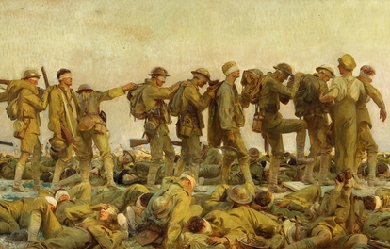
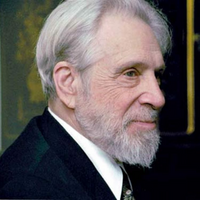
Anthony Evan Hecht (January 16, 1923– October 20, 2004) was an American poet. His work combined a deep interest in form with a passionate desire to confront the horrors of 20th century history, with the Second World War, in which he fought, and the Holocaust being recurrent themes in his work. Biography Early years Hecht was born in New York City to German-Jewish parents. He was educated at various schools in the city– he was a classmate of Jack Kerouac at Horace Mann School– but showed no great academic ability, something he would later refer to as “conspicuous.” However, as a freshman English student at Bard College in New York he discovered the works of Stevens, Auden, Eliot, and Dylan Thomas. It was at this point that he decided he would become a poet. Hecht’s parents were not happy at his plans and tried to discourage them, even getting family friend Ted Geisel, better known as Dr. Seuss, to attempt to dissuade him. In 1944, upon completing his final year at Bard, Hecht was drafted into the 97th Infantry Division and was sent to the battlefields in Europe. He saw combat in Germany in the “Ruhr Pocket” and in Cheb in Czechoslovakia. However, his most significant experience occurred on April 23, 1945 when Hecht’s division helped liberate Flossenbürg concentration camp. Hecht was ordered to interview French prisoners in the hope of gathering evidence on the camp’s commanders. Years later, Hecht said of this experience, The place, the suffering, the prisoners’ accounts were beyond comprehension. For years after I would wake shrieking. Career After the war ended, Hecht was sent to Japan, where he became a staff writer with Stars and Stripes. He returned to the US in March 1946 and immediately took advantage of the G.I. bill to study under the poet-critic John Crowe Ransom at Kenyon College, Ohio. Here he came into contact with fellow poets such as Randall Jarrell, Elizabeth Bishop, and Allen Tate. He later received his master’s degree from Columbia University. In 1947 Hecht attended the University of Iowa and taught in the Iowa Writers’ Workshop, together with writer Robie Macauley, with whom Hecht had served during World War II, but, suffering from post-traumatic stress disorder after his war service, gave it up swiftly to enter psychoanalysis. Hecht released his first collection, A Summoning of Stones, in 1954. In this work his mastery of a wide range of poetic forms were clear as was his awareness of the forces of history, which he had seen first hand. Even at this stage Hecht’s poetry was often compared with that of Auden, with whom Hecht had become friends in 1951 during a holiday on the Italian island of Ischia, where Auden spent each summer. In 1993 Hecht published The Hidden Law, a critical reading of Auden’s body of work. During his career Hecht won many fans, and prizes, including the Rome Prize in 1951 and the 1968 Pulitzer Prize for Poetry for his second work The Hard Hours. It was within this volume that Hecht first addressed his own experiences of World War II - memories that had caused him to have a nervous breakdown in 1959. Hecht spent three months in hospital following his breakdown, although he was spared electric shock therapy, unlike Sylvia Plath, whom he had encountered while teaching at Smith College. Hecht’s main source of income was as a teacher of poetry, most notably at the University of Rochester, where he taught from 1967 to 1985. He also spent varying lengths of time teaching at other notable institutions such as Smith, Bard, Harvard, Georgetown, and Yale. Between 1982 and 1984, he held the esteemed position of Poet Laureate Consultant in Poetry to the Library of Congress. Hecht won a number of notable literary awards including: the 1968 Pulitzer Prize for Poetry (for the volume The Hard Hours), the 1983 Bollingen Prize, the 1988 Ruth Lilly Poetry Prize, the 1989 Aiken Taylor Award for Modern American Poetry, the 1997 Wallace Stevens Award, the 1999/2000 Frost Medal, and the Tanning Prize. Hecht died October 20, 2004, at his home in Washington, D. C.; he is buried at the cemetery at Bard College. One month later, on November 17, Hecht was awarded the National Medal of Arts, accepted on his behalf by his wife, Helen Hecht. The Anthony Hecht prize is awarded annually by the Waywiser press. Bibliography * Poetry * A Summoning of Stones (1954) * The Hard Hours (1967) * Millions of Strange Shadows (1977) * The Venetian Vespers (1979) * The Transparent Man (1990) * Flight Among the Tombs (1998) * The Darkness and the Light (2001) * Translations * Aeschylus’s Seven Against Thebes (1973) (with Helen Bacon) * Other Works * Obbligati: Essays in Criticism (1986) * The Hidden Law: The Poetry of W. H. Auden (1993) * On the Laws of the Poetic Art (1995) * Melodies Unheard: Essays on the Mysteries of Poetry (Johns Hopkins University Press) (2003) References Wikipedia—https://en.wikipedia.org/wiki/Anthony_Hecht

